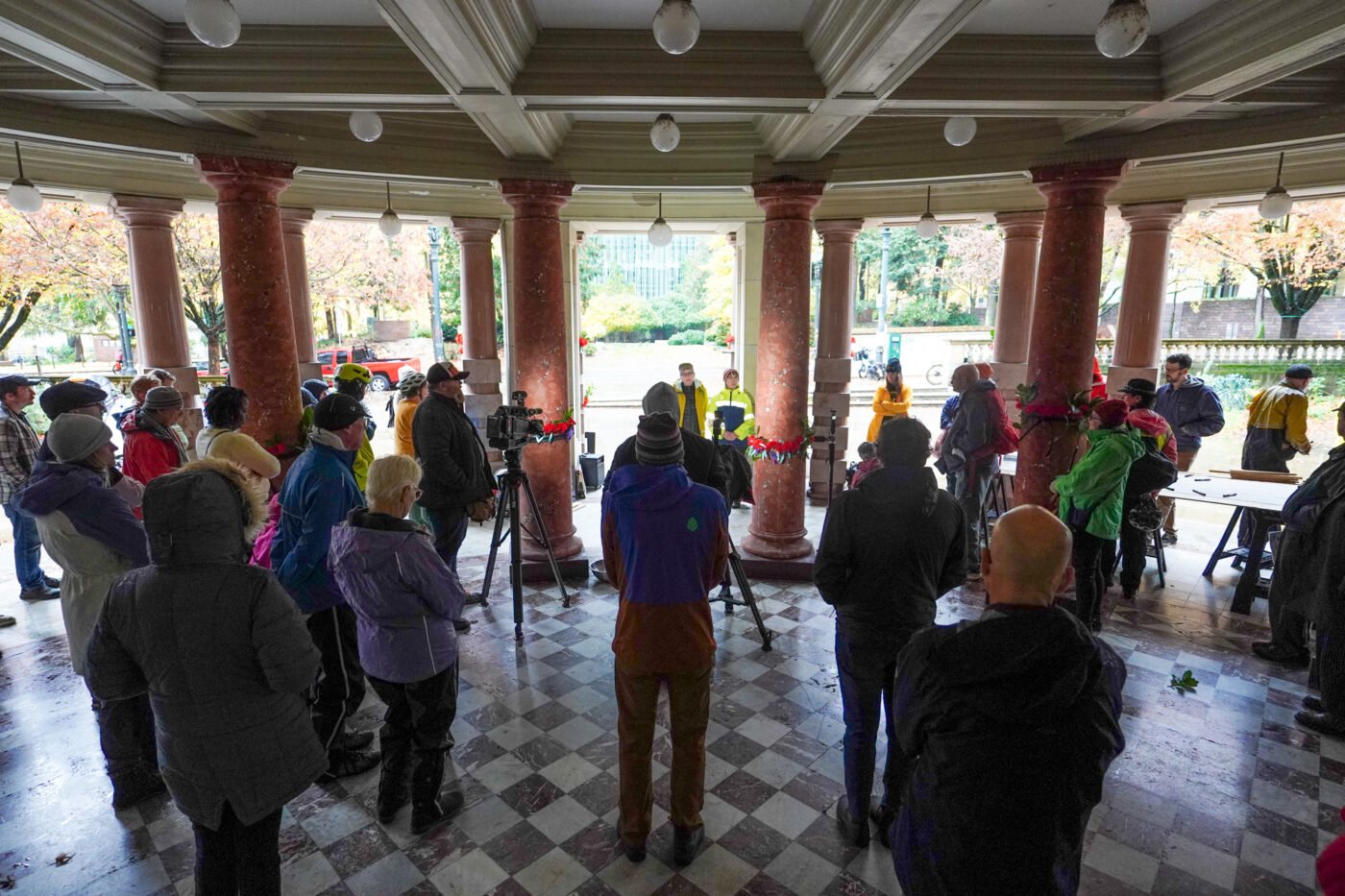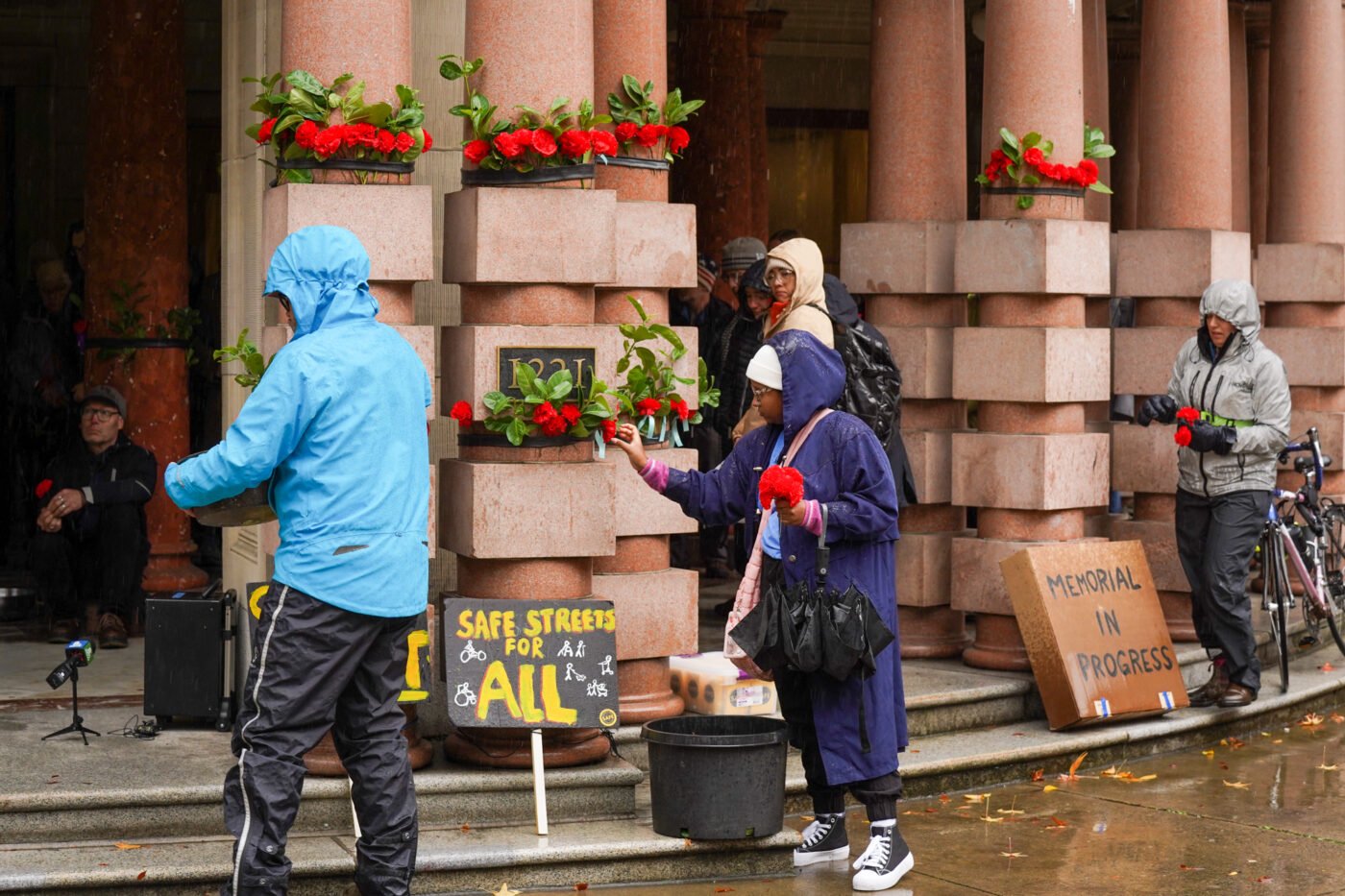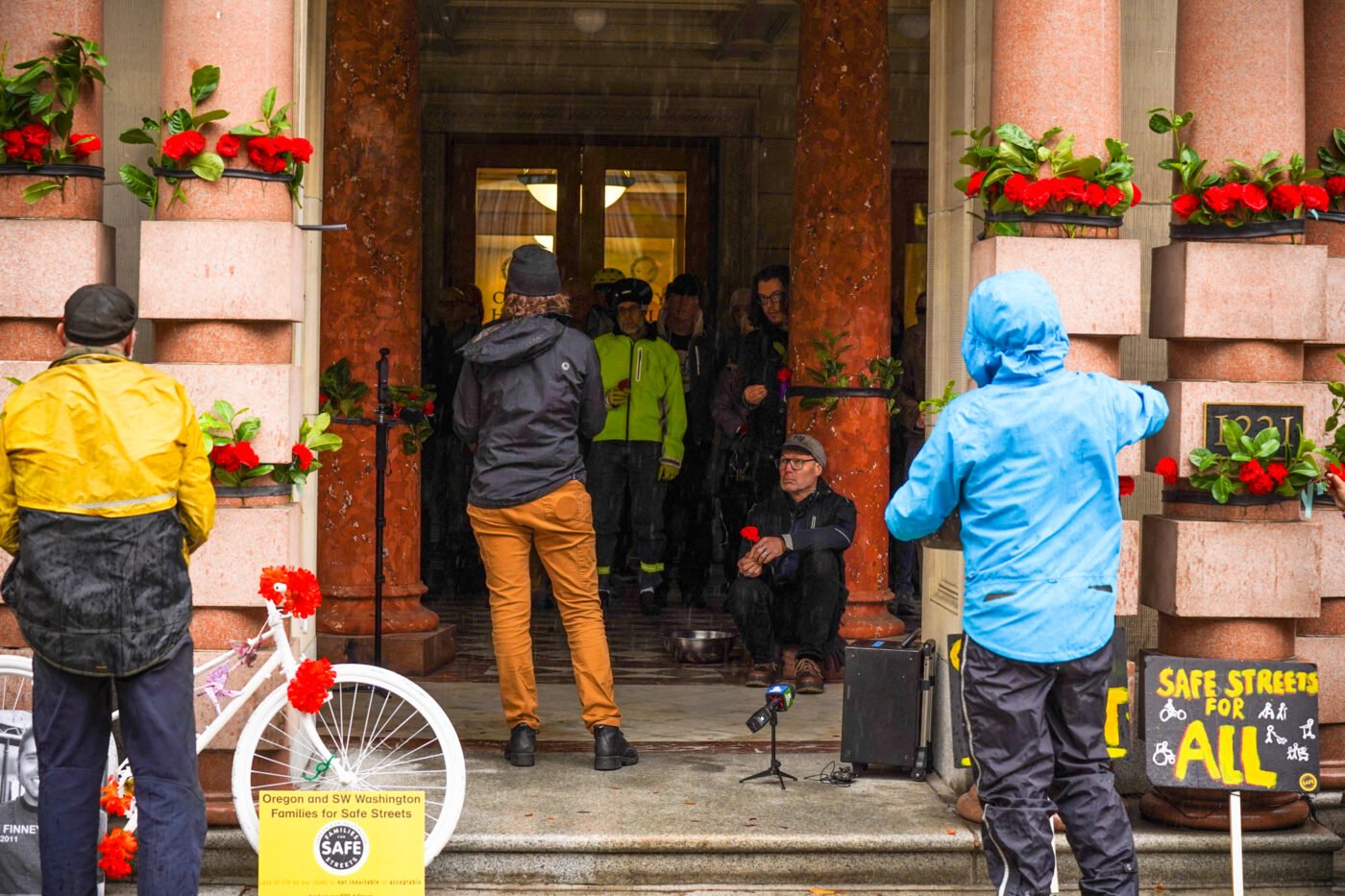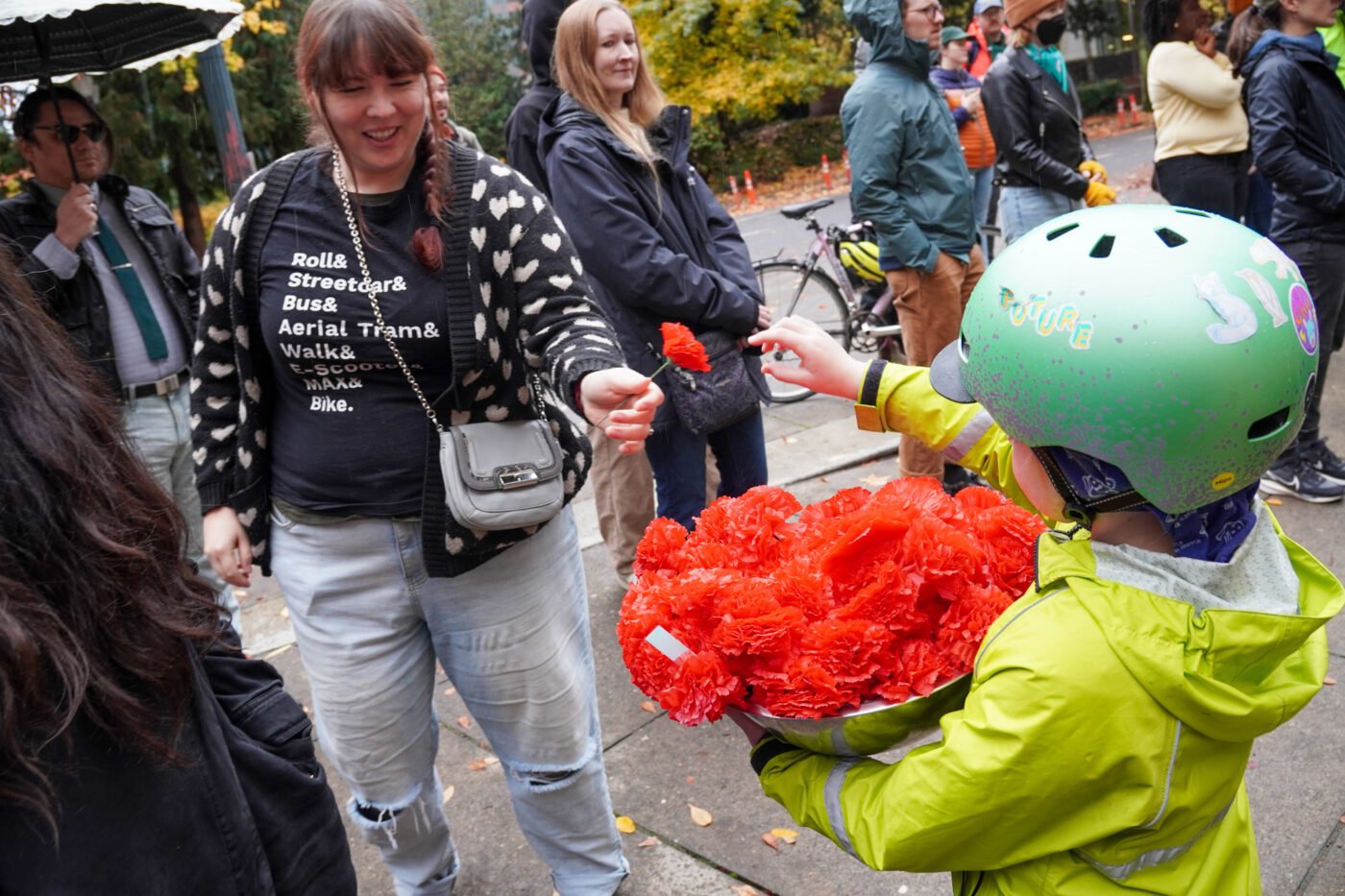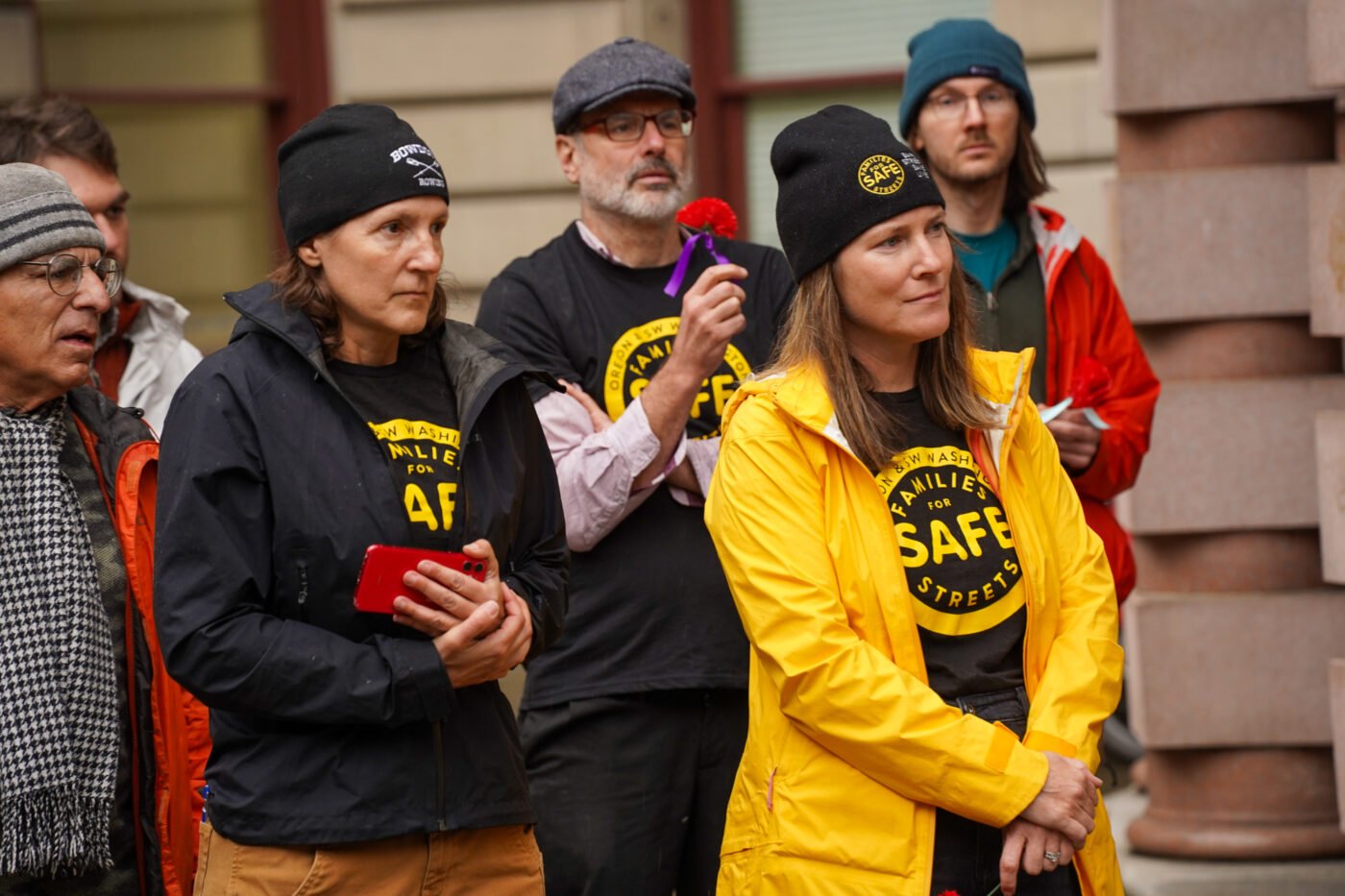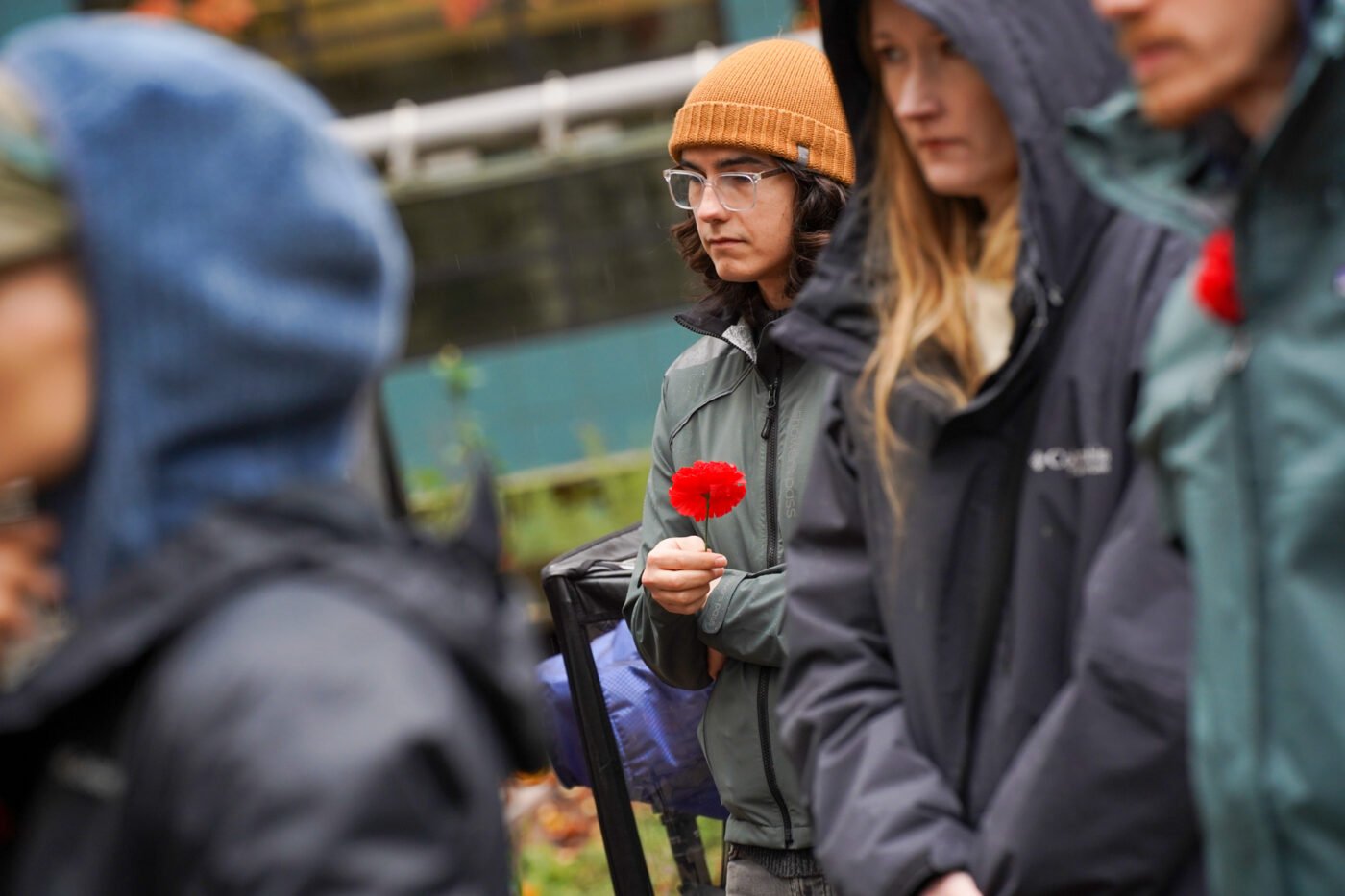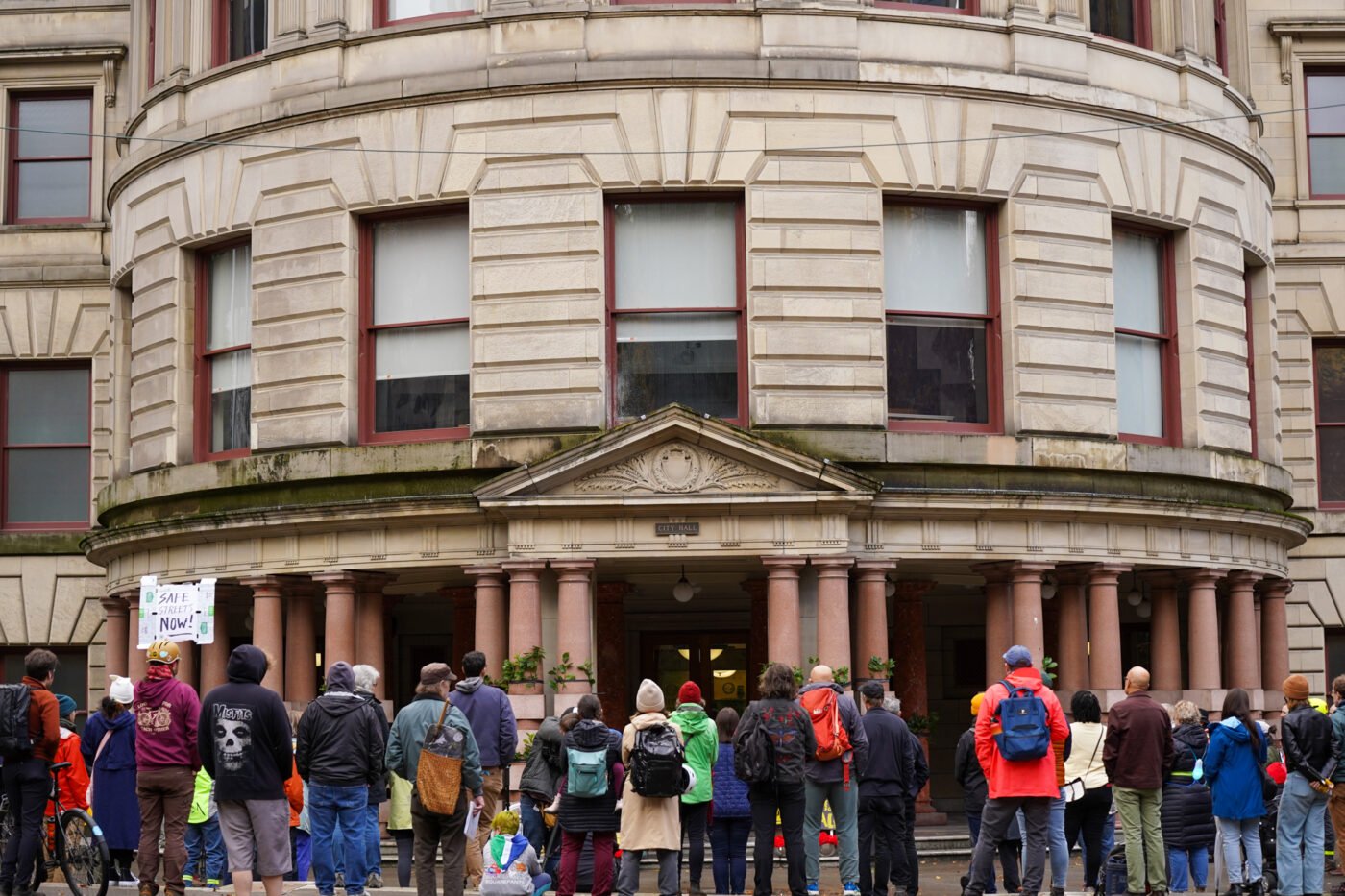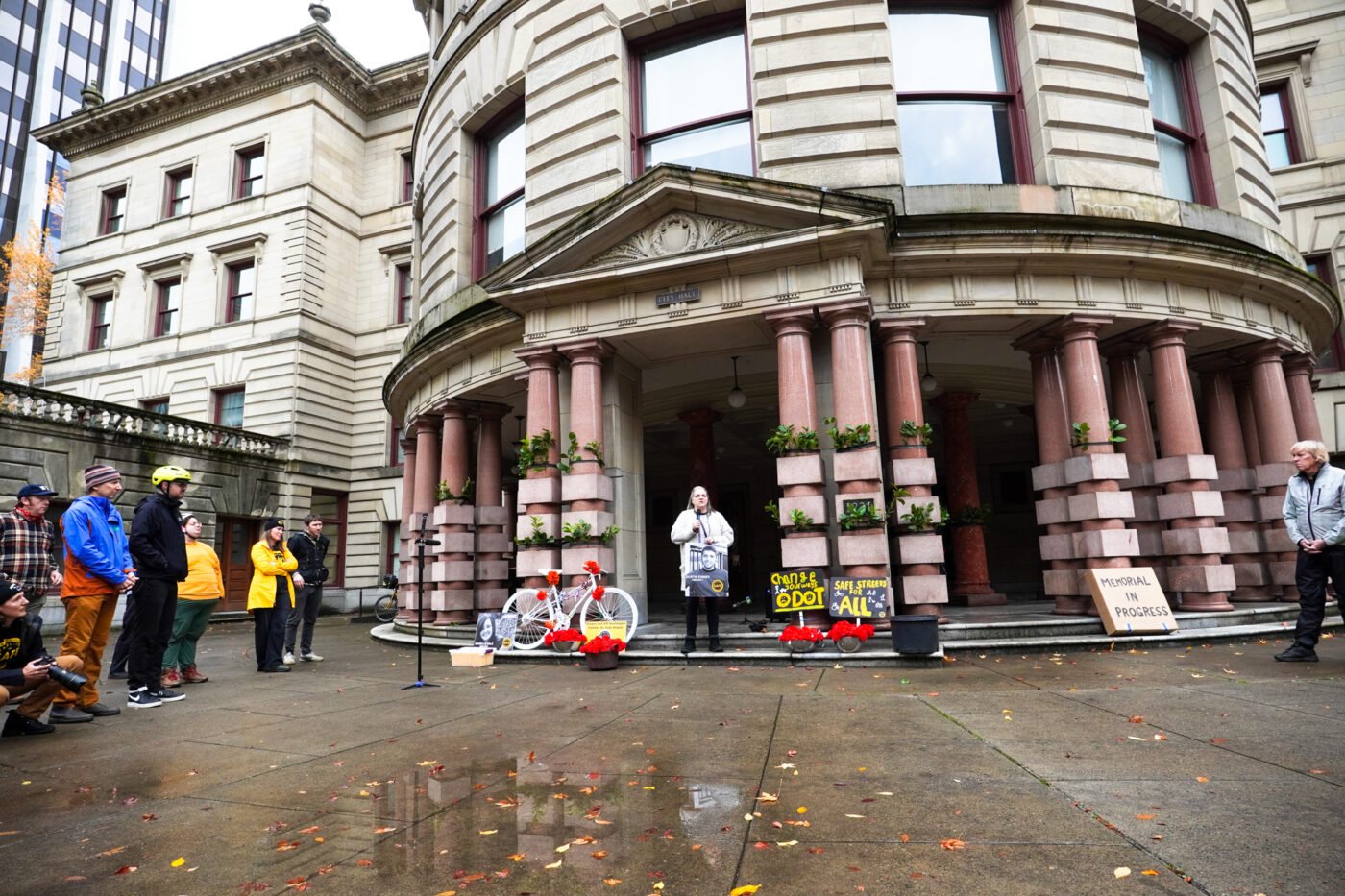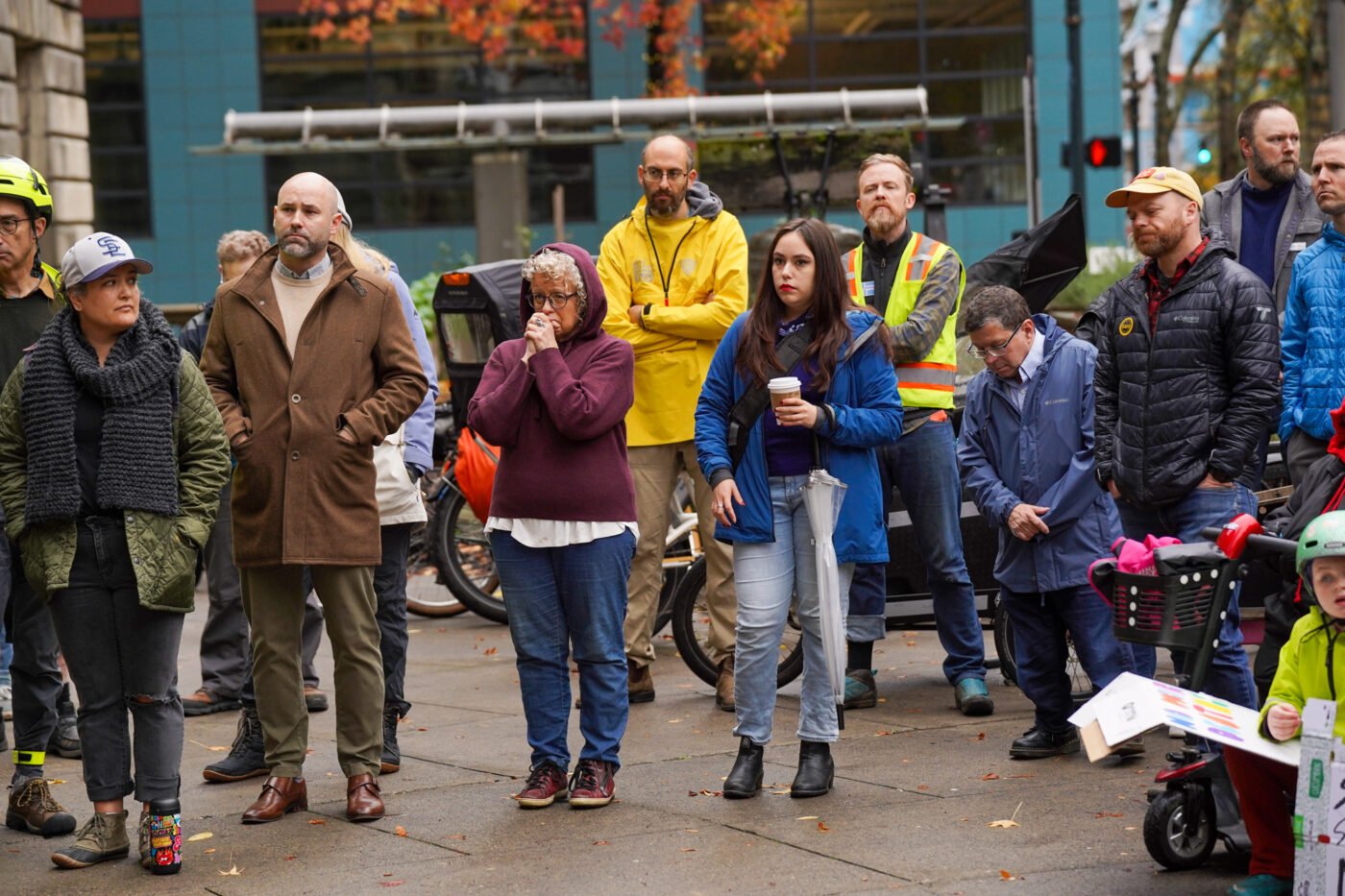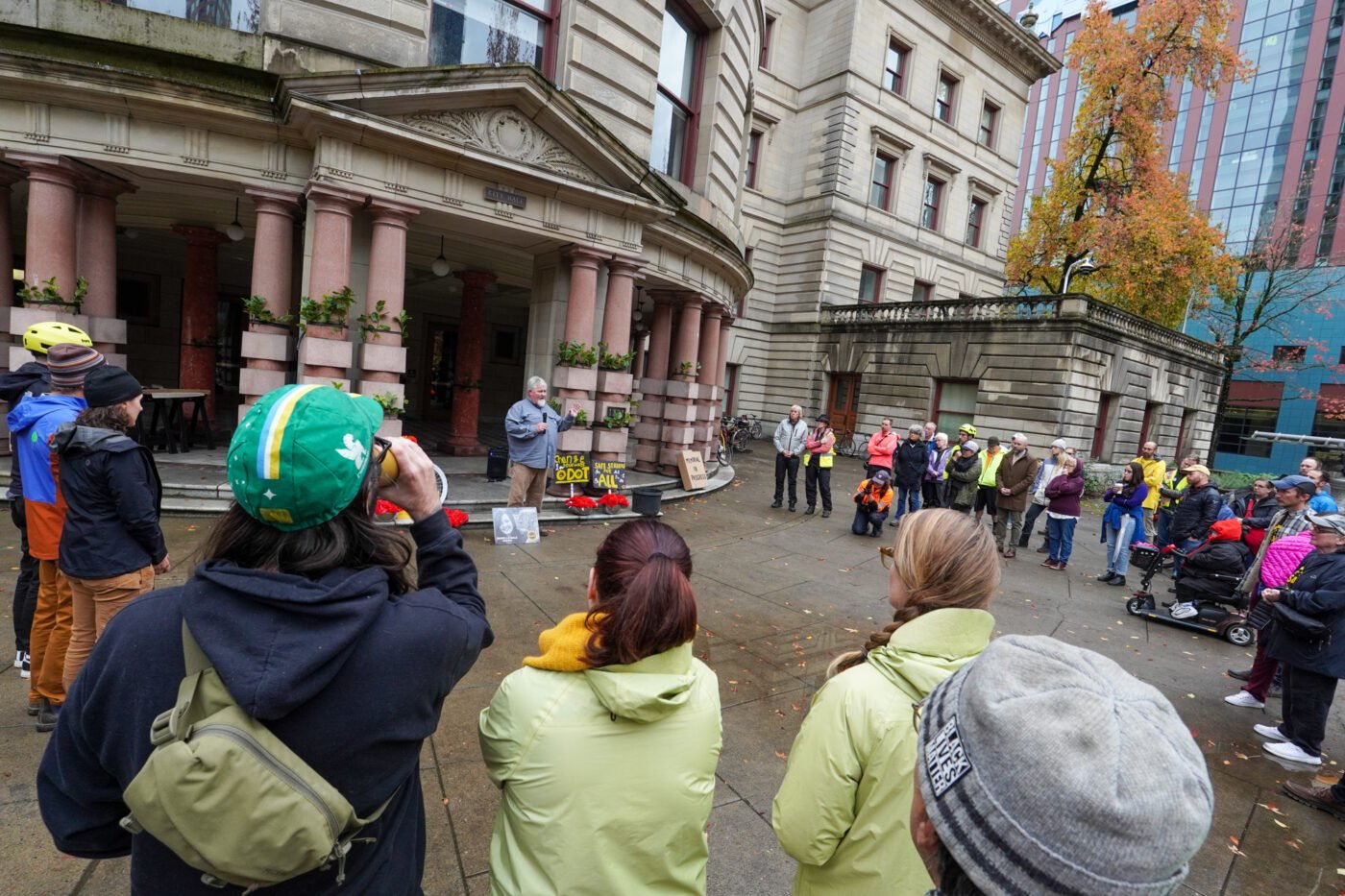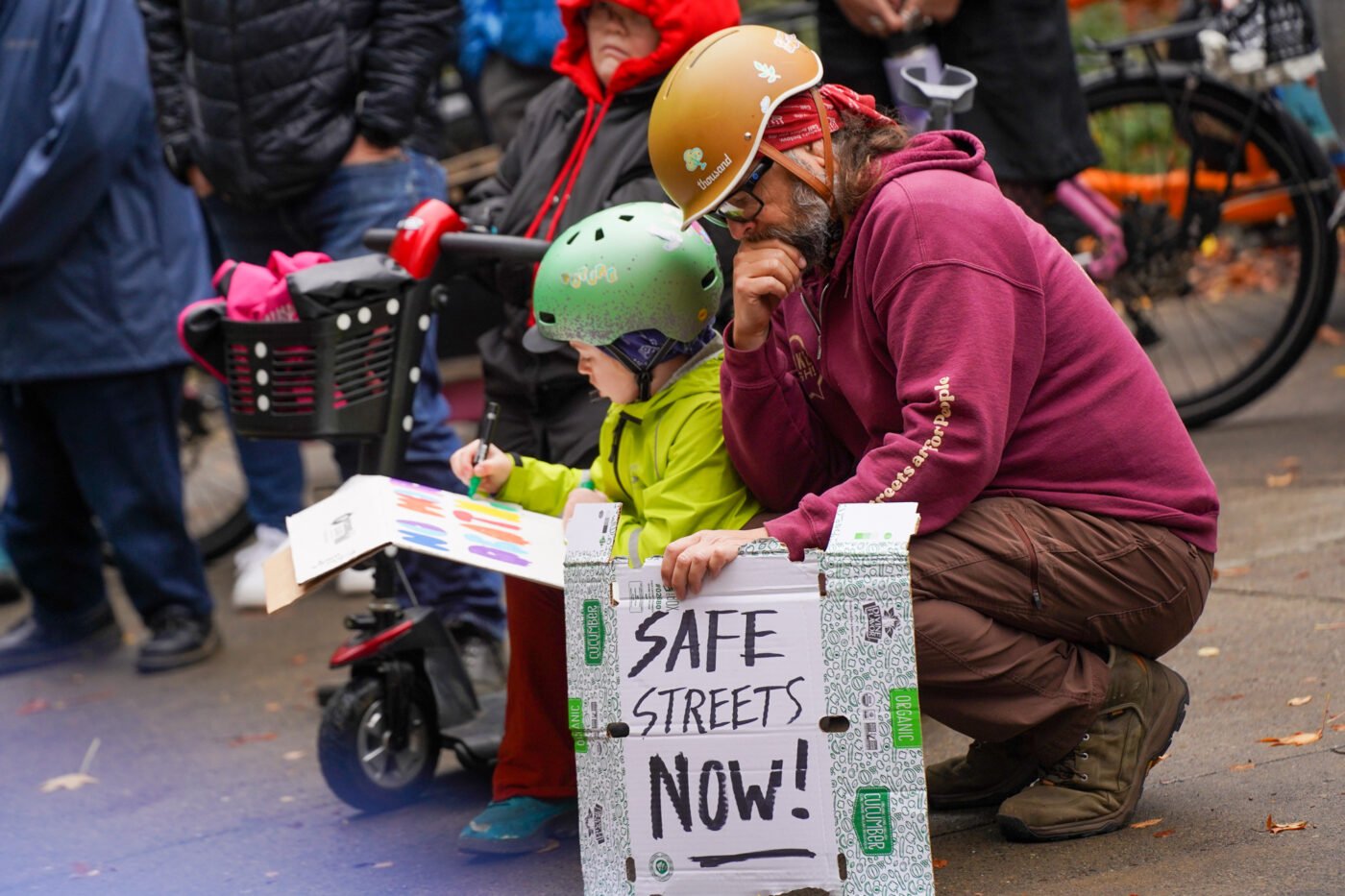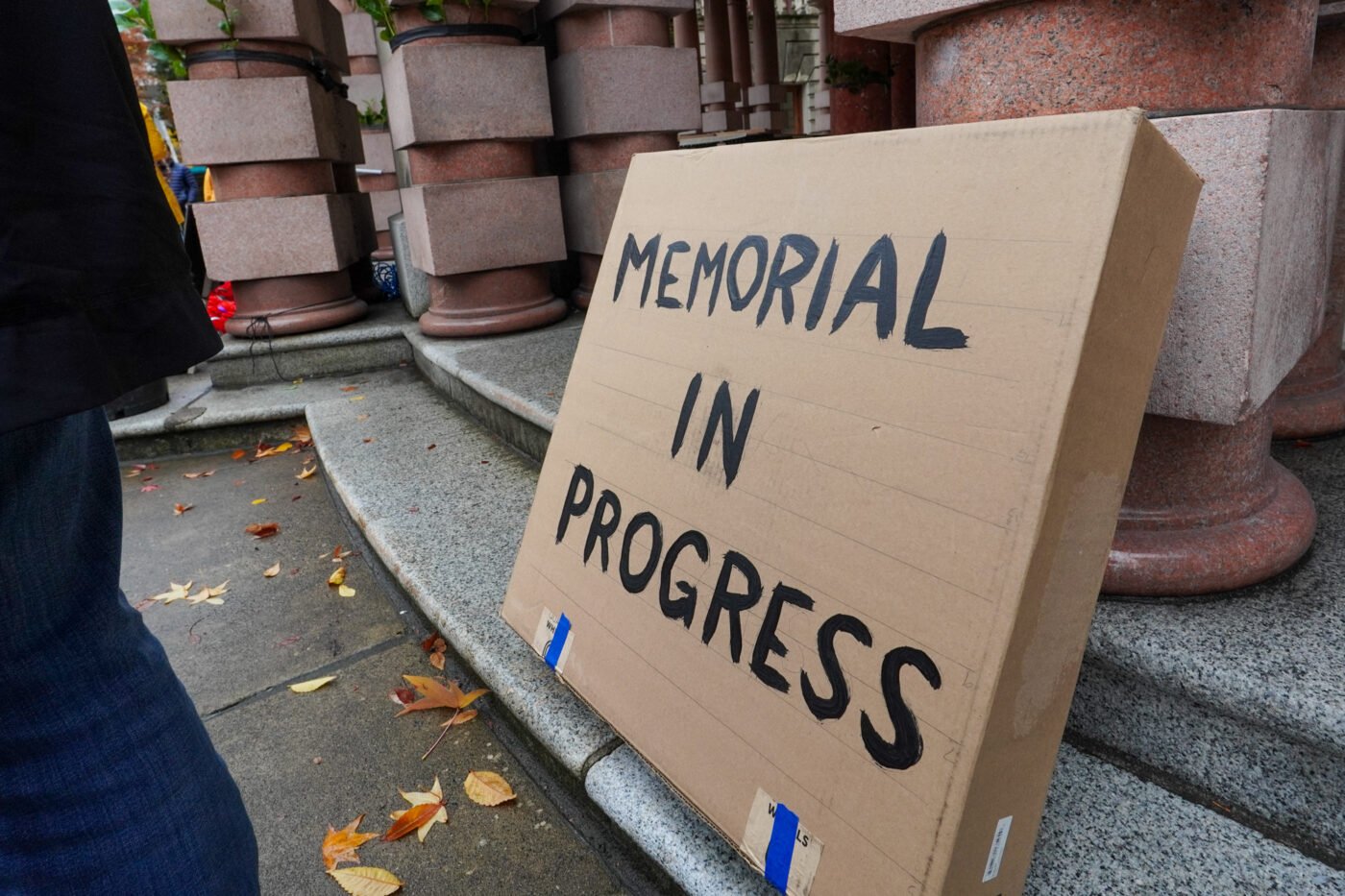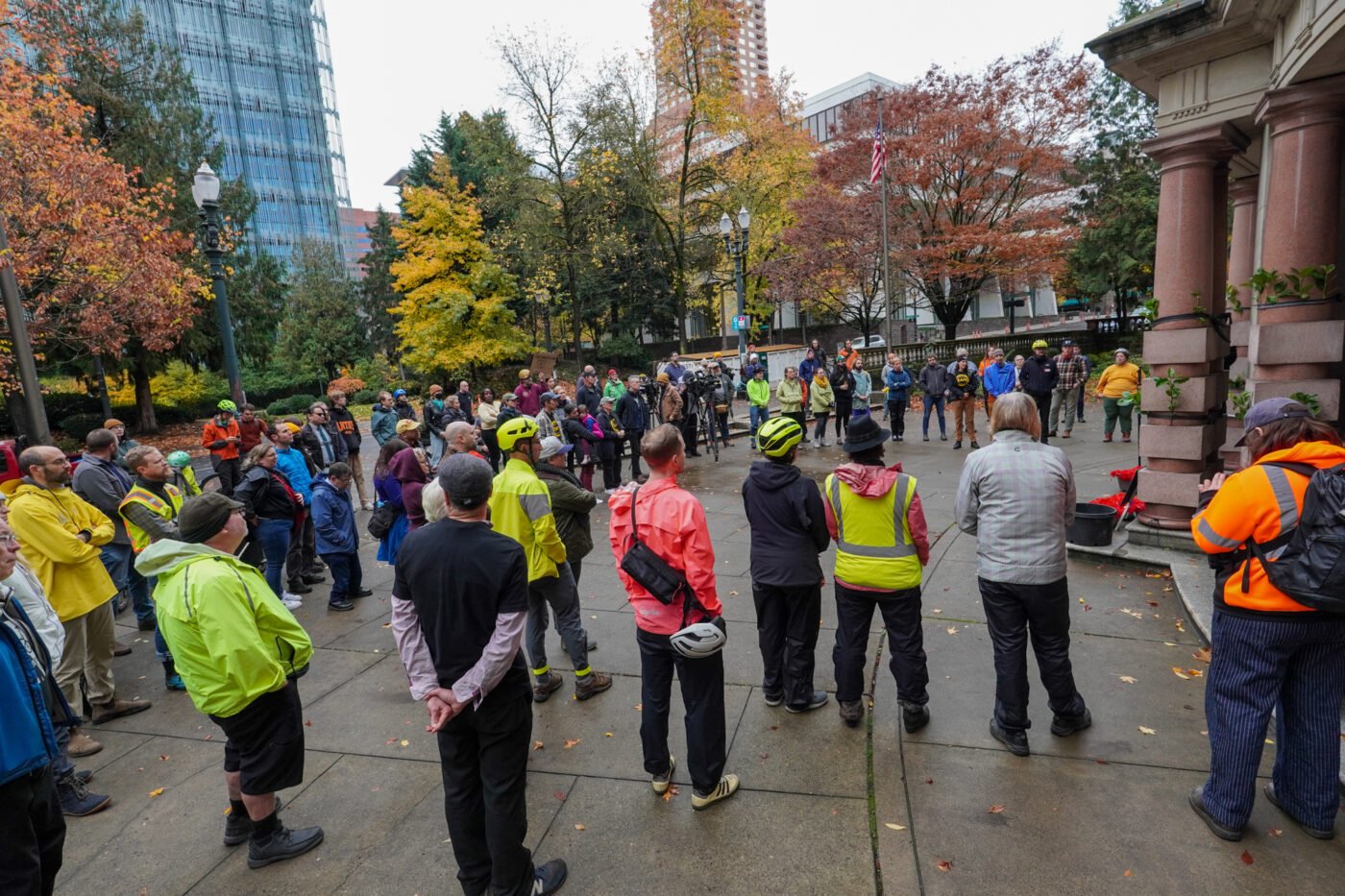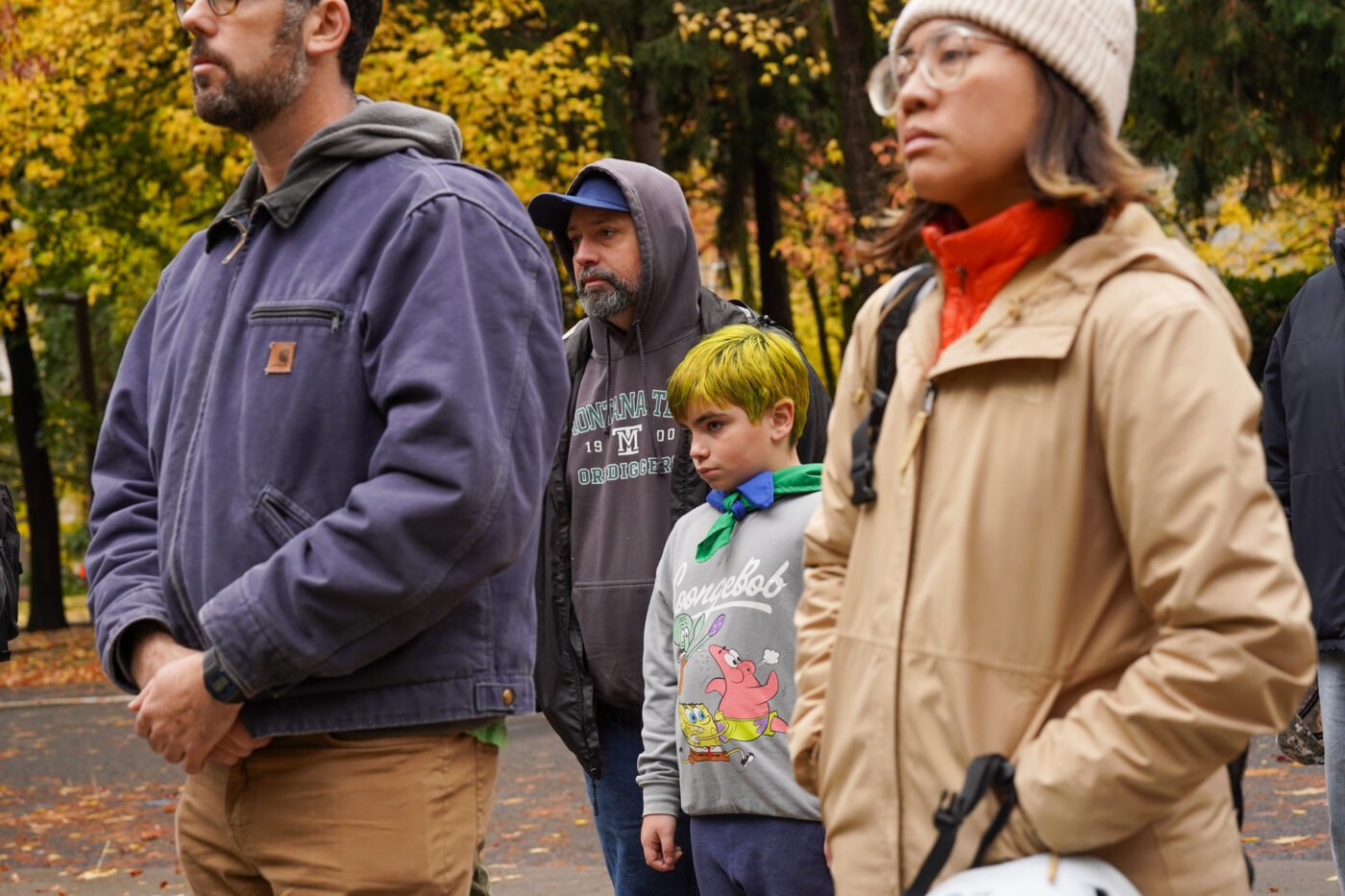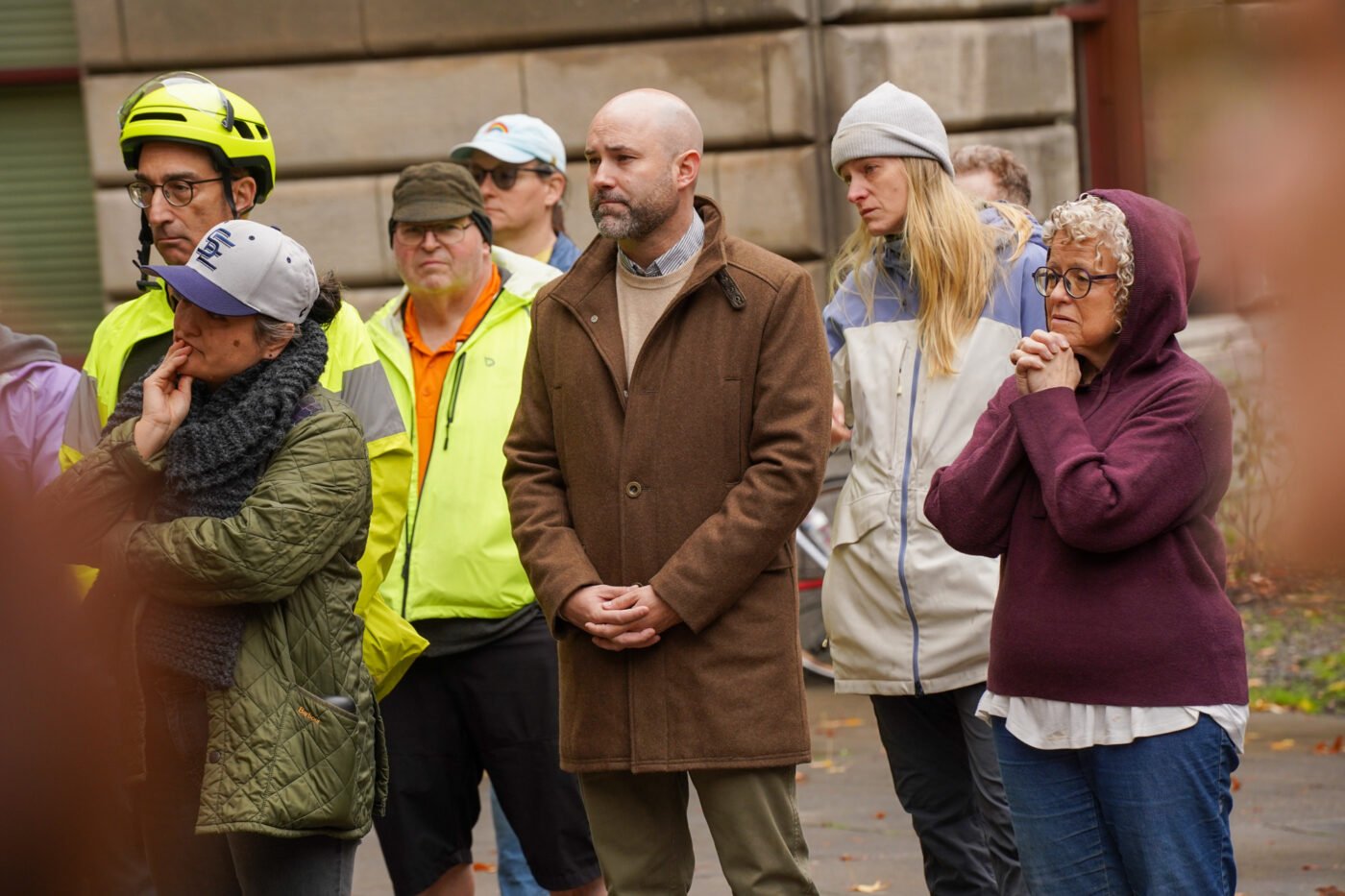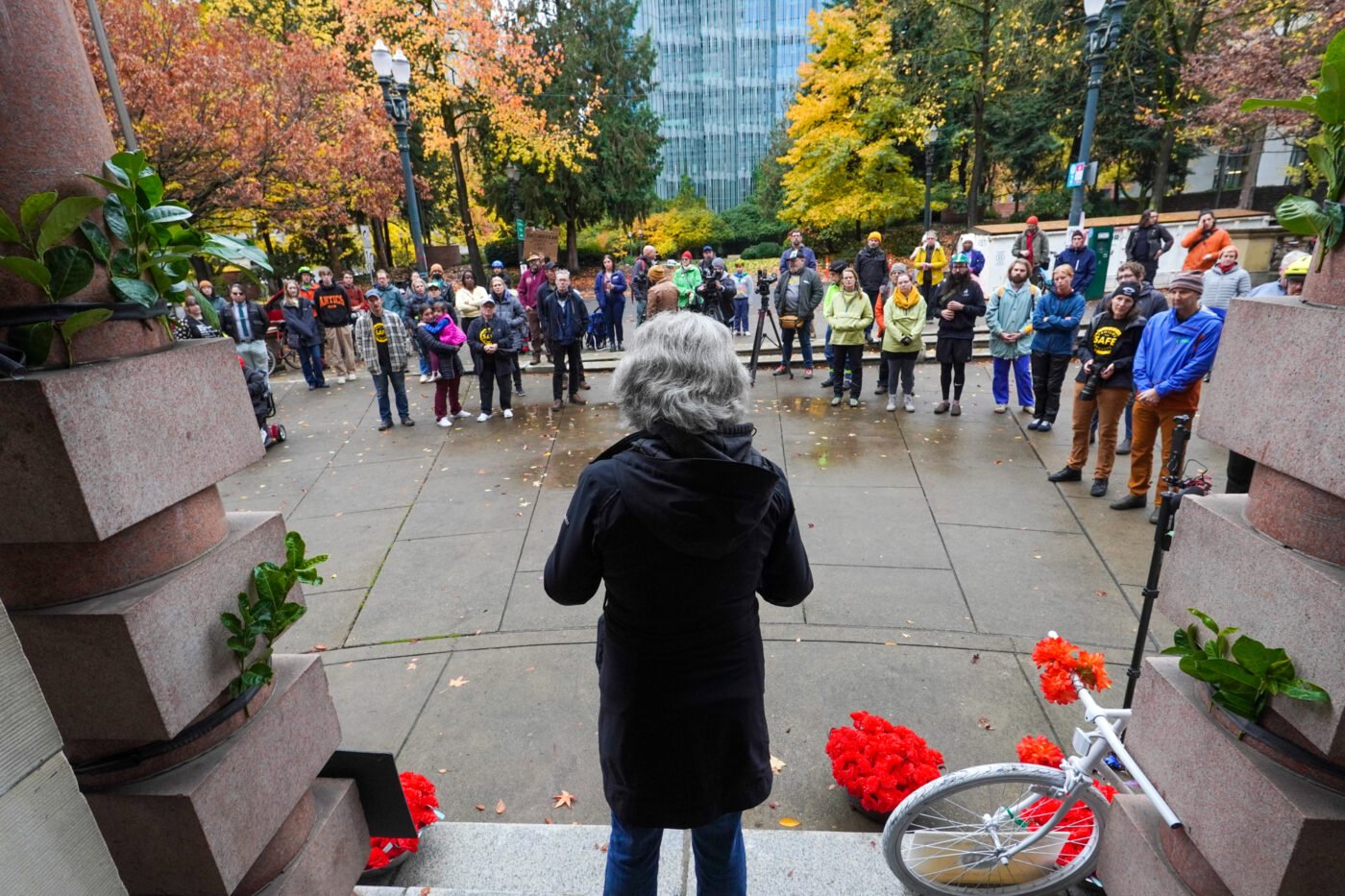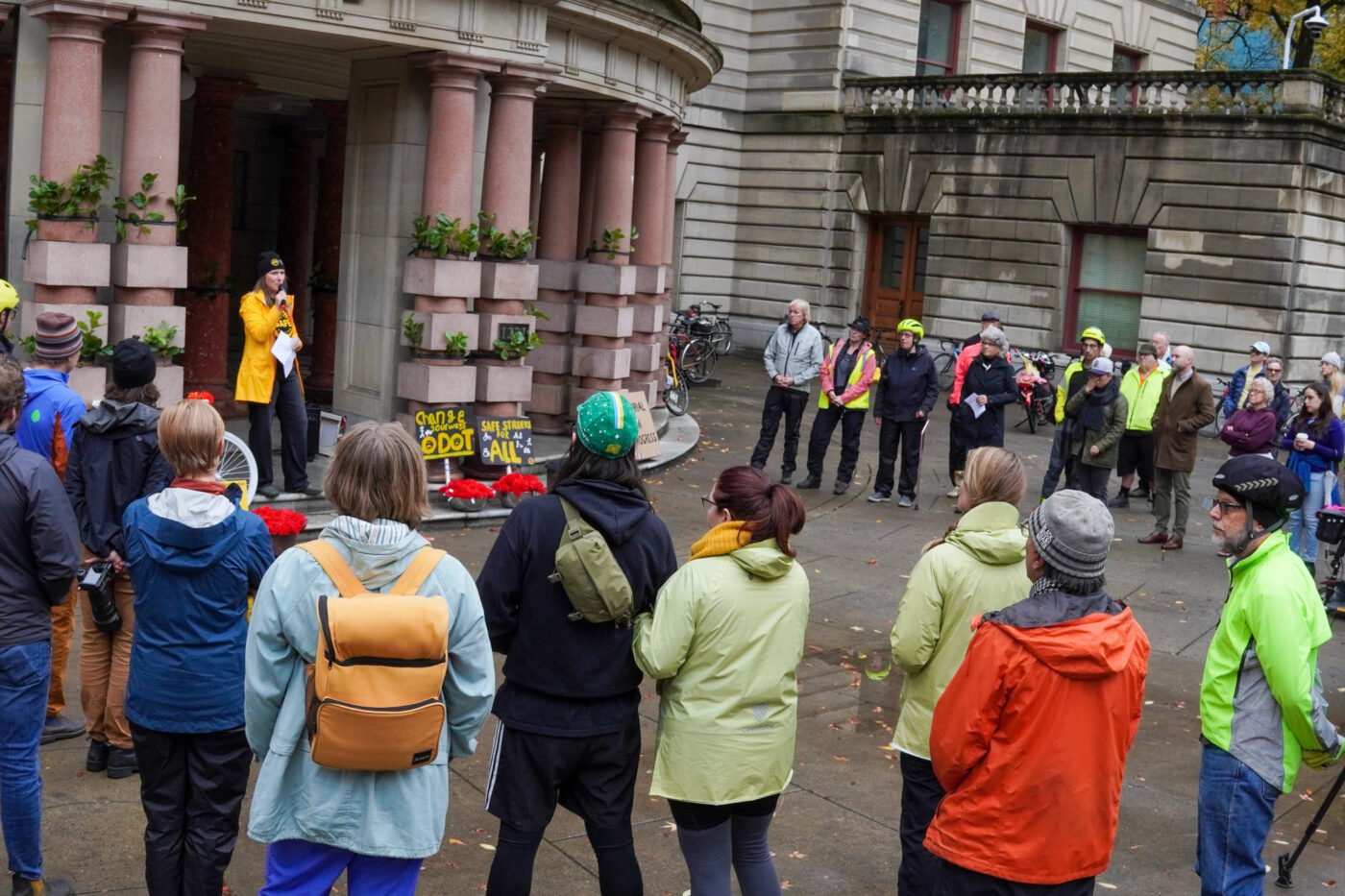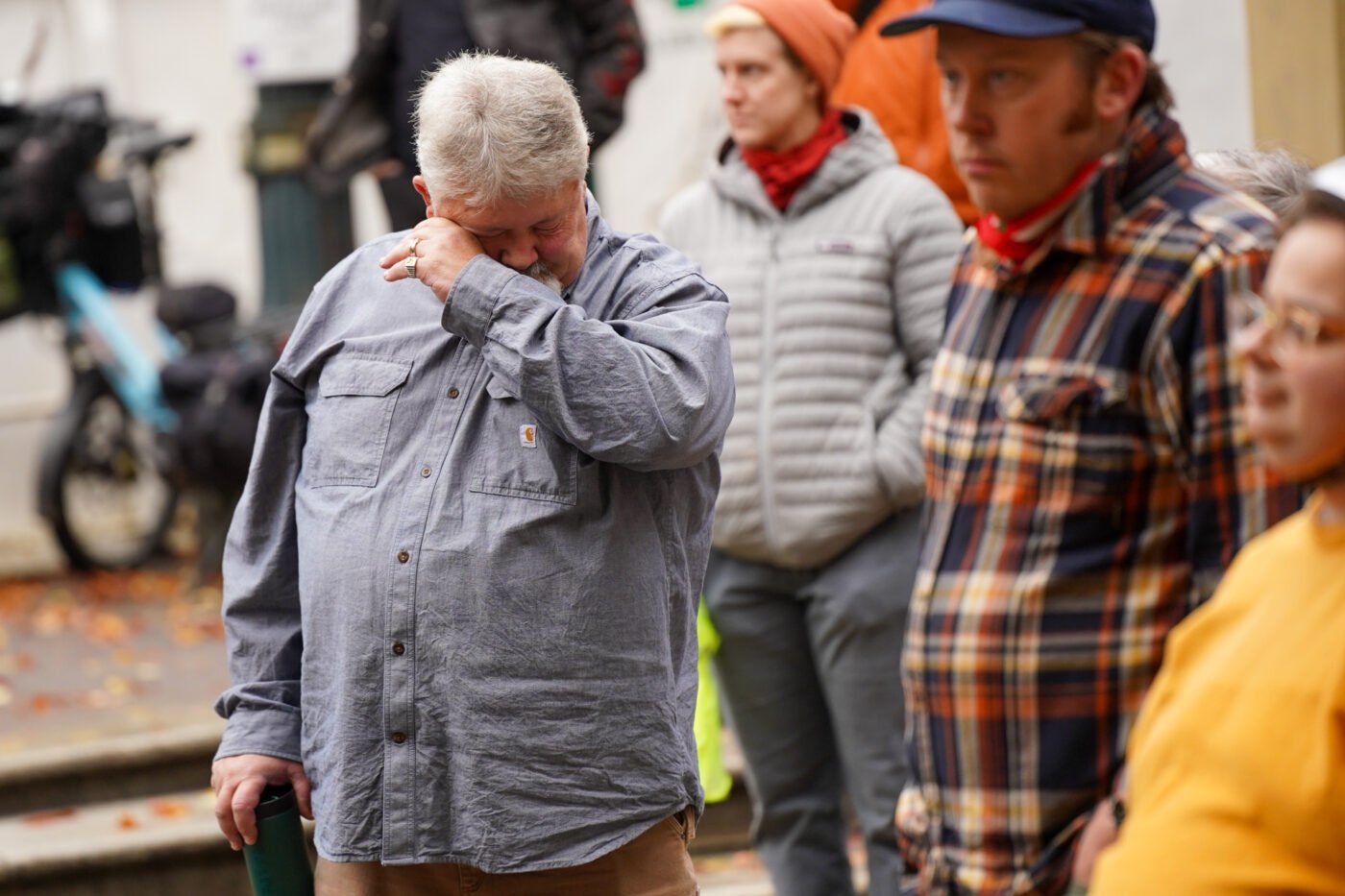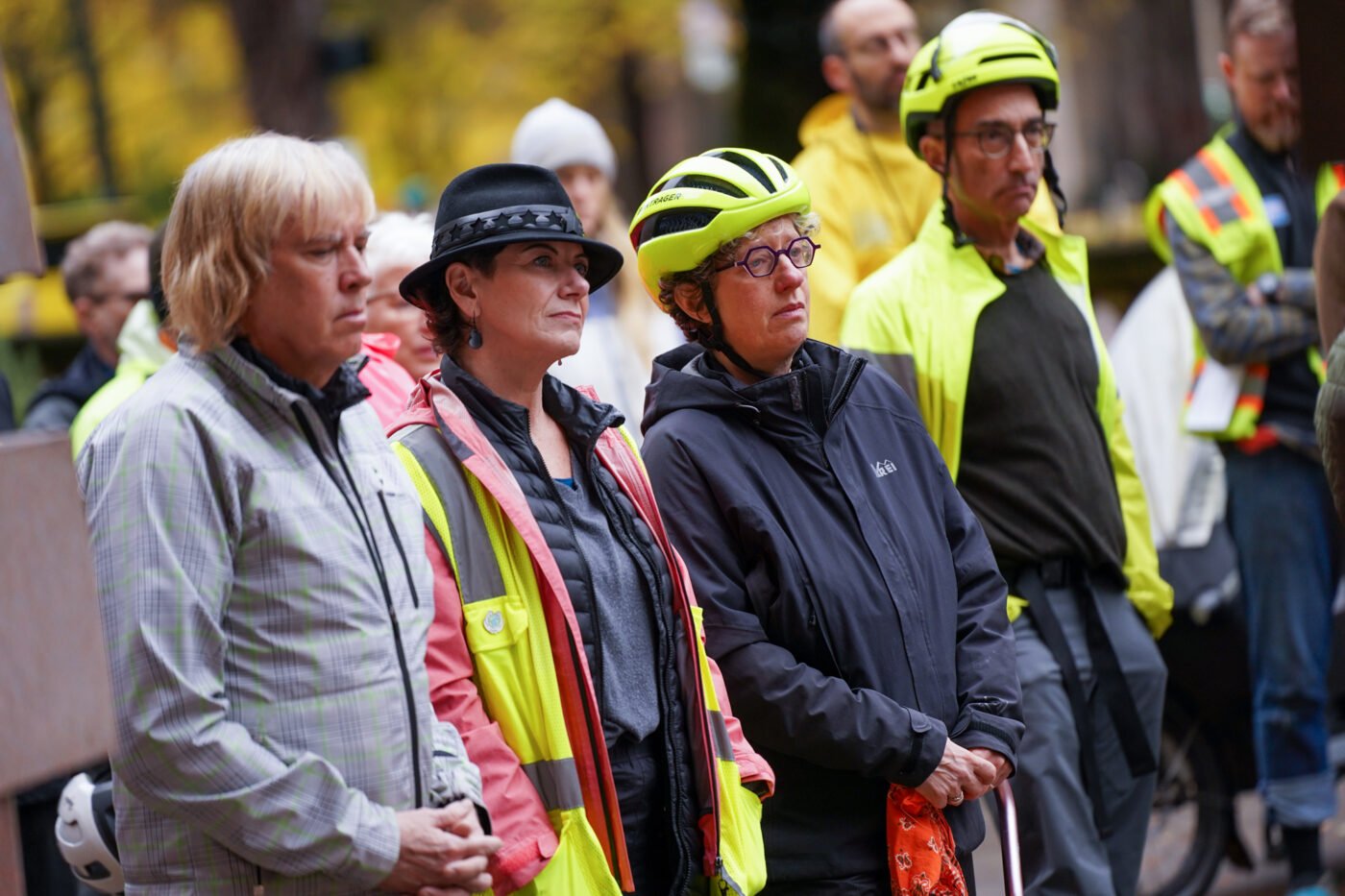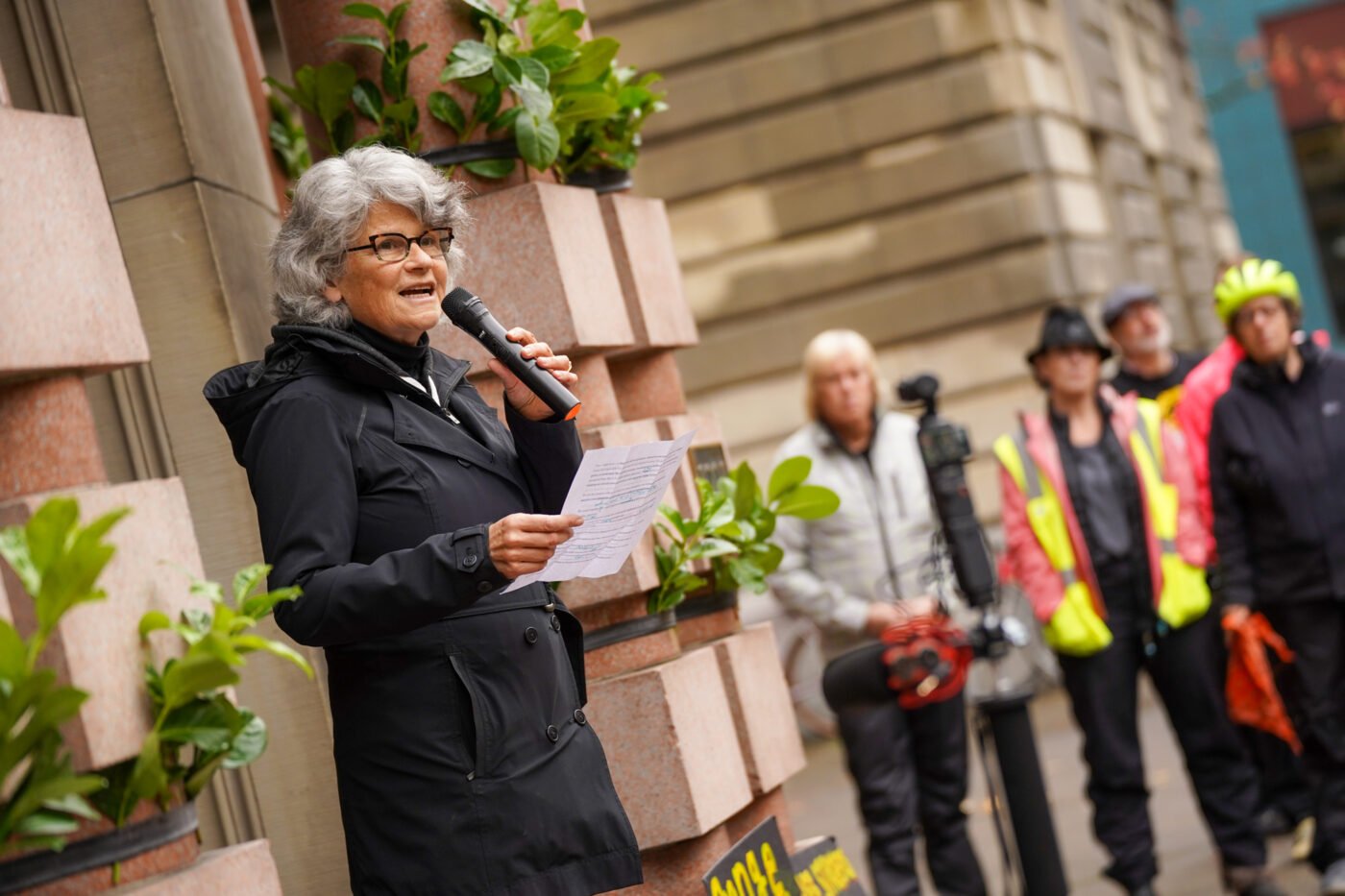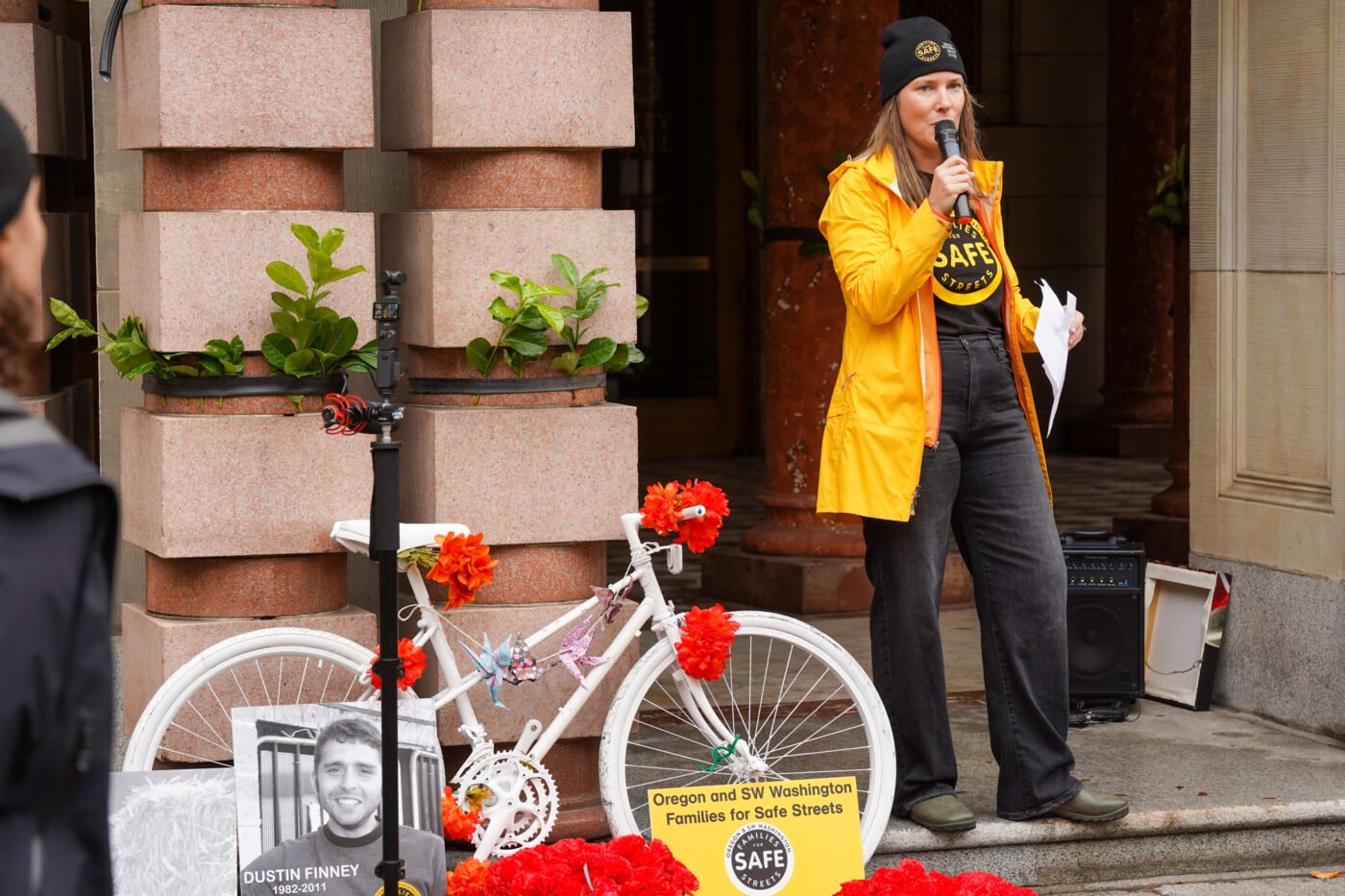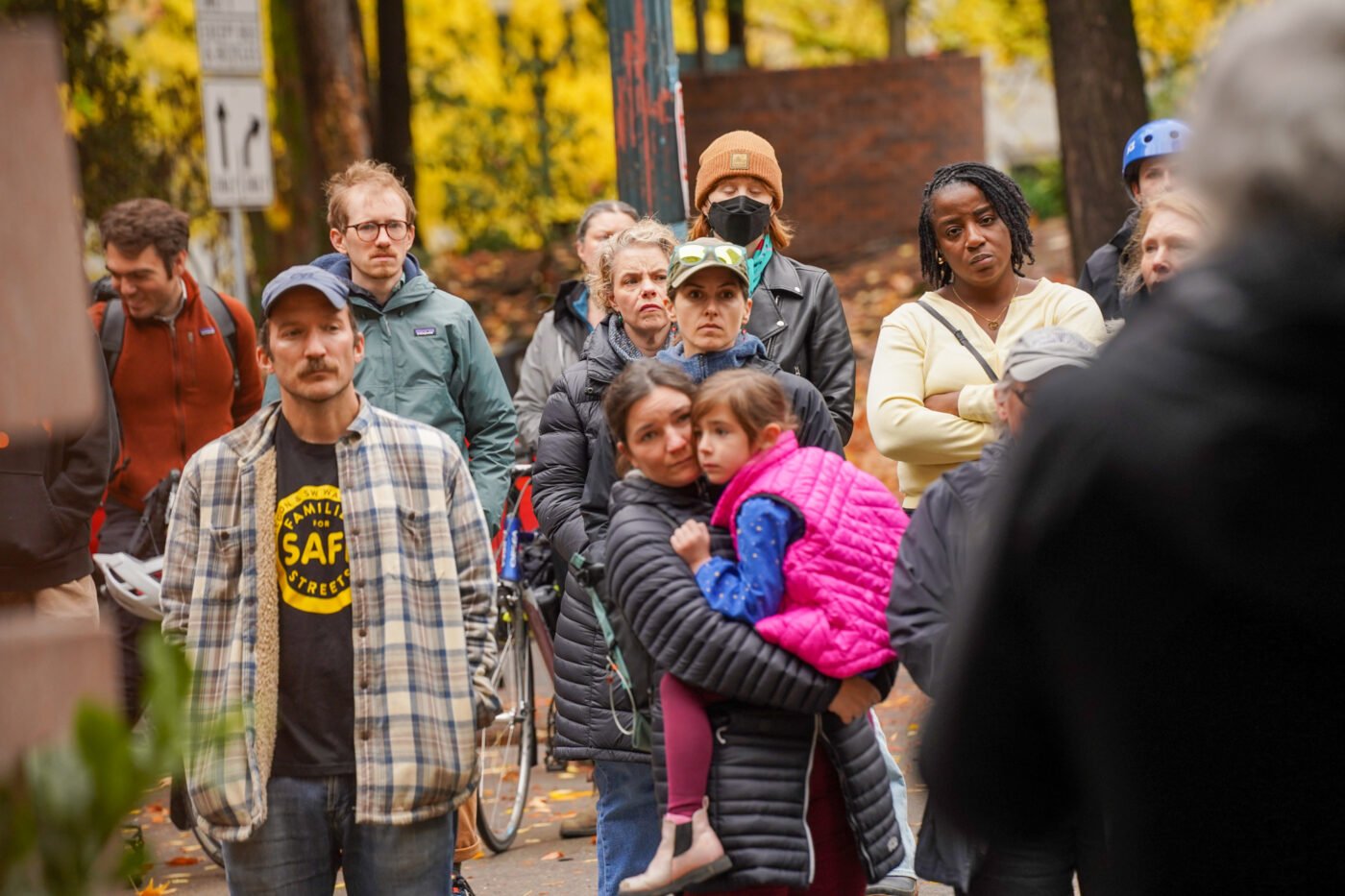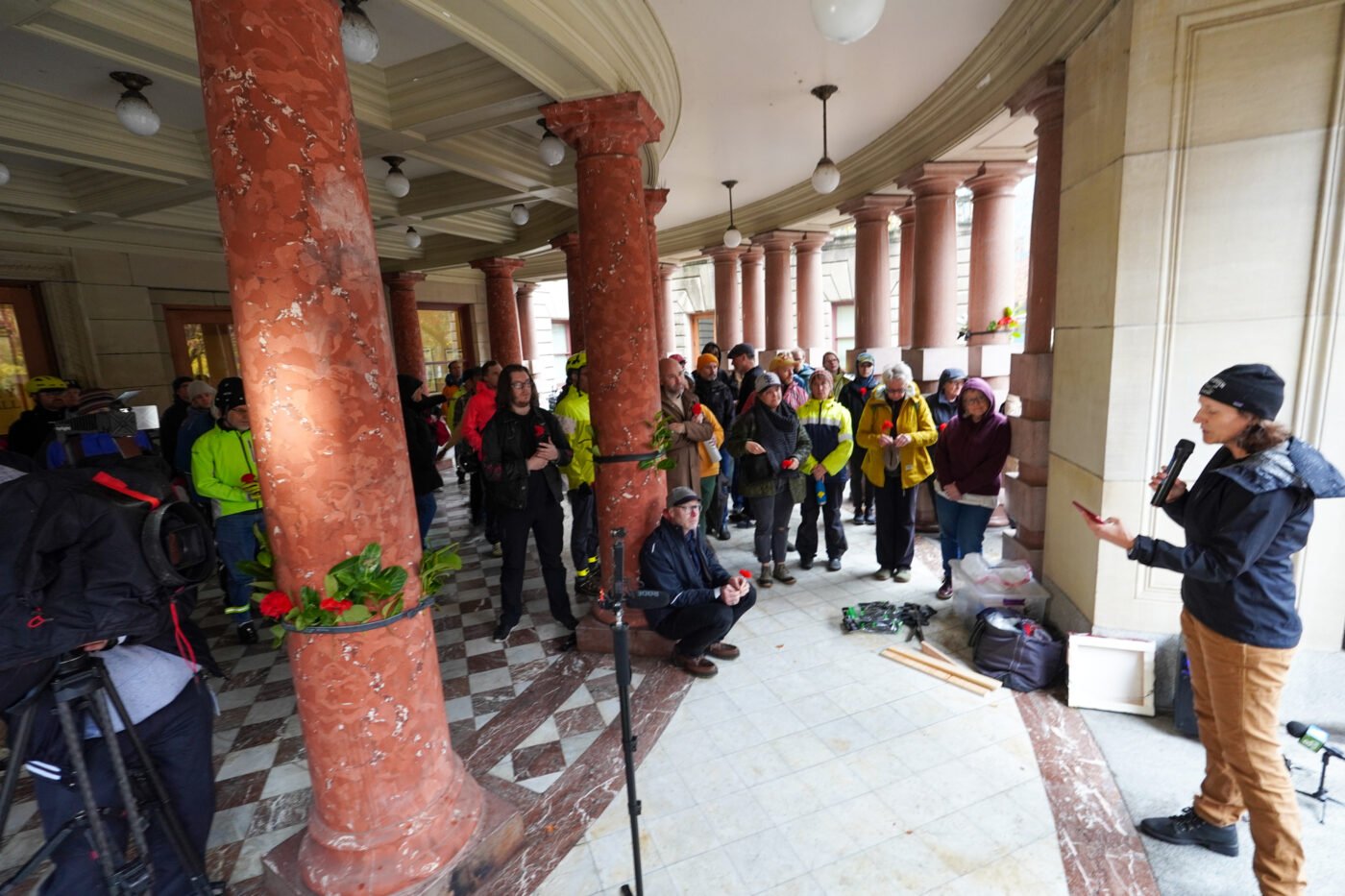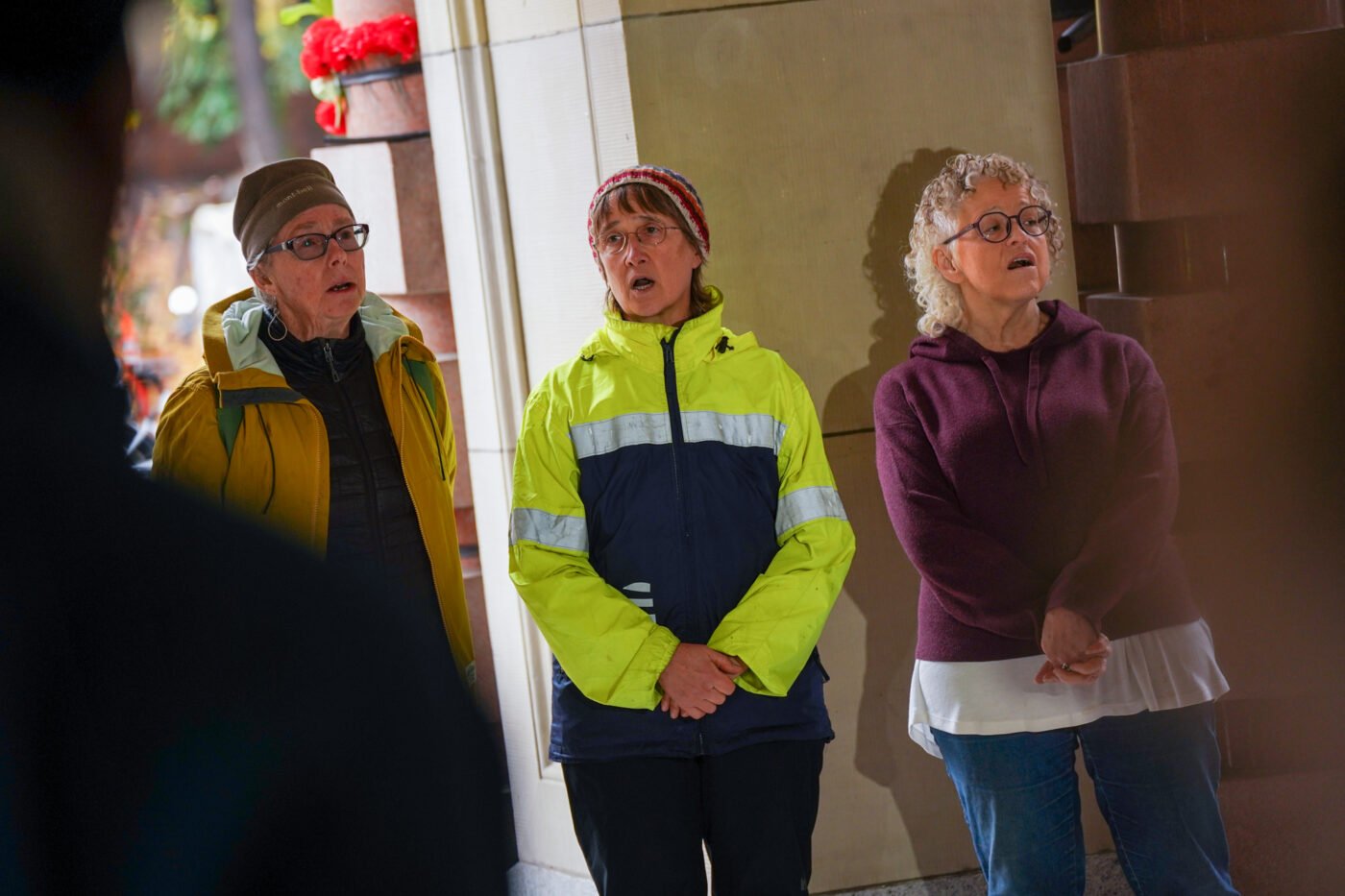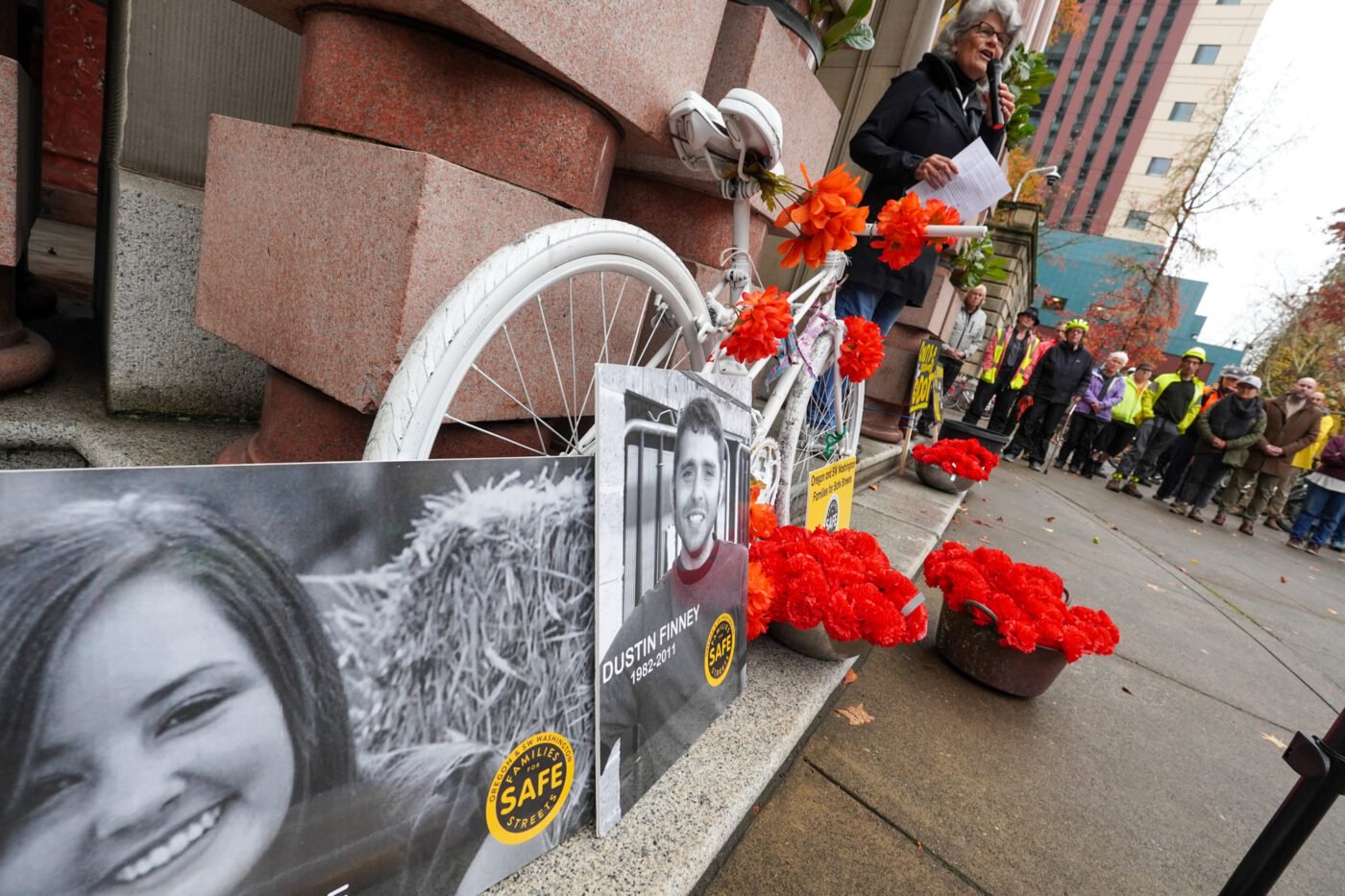
The annual World Day of Remembrance brought advocates, elected officials and survivors together in front of Portland City Hall Sunday. It was a powerful event where five newly elected city council members were moved to speak and many were moved to tears. The energy was part rally and part memorial ceremony as the crowd heard speeches aimed at inspiring policy changes, and songs aimed at spurring emotions.
The event was held in cities across the globe to force people to recognize the senseless and preventable deaths that happen on our roads. Around 40,000 people are killed in traffic crashes every year in America. Oregon has at least one fatality per day and Portland has seen a stubborn increase in road deaths despite working to reverse the trend. But Sunday’s event went far beyond sad statistics. Attendees heard mothers and fathers share graphic details of how their children were killed and held space for expressions of loss mixed with anger and confusion about a culture that doesn’t seem to care.
“I am here this morning for everyone that has died due to traffic crashes and I’m here for the communities they left behind. Which is all of us,” said street chaplain Sara Fischer at the outset of the ceremony.
Behind Fischer, bicycle inner tubes wrapped around the marble columns of City Hall held twigs of green laurel. To each side of her were protest signs and buckets of red flowers that represented someone killed in traffic in Oregon. A bright white ghost bike was a stark symbol of the gathering’s purpose. Fischer spoke of the need for more advocacy to fight for safer streets and buoy the strength and spirit of families who’ve lost loved ones. “They should not do this work by themselves,” she said.
In addition to short speeches, there was a large canvas banner spread across a table where people used pens to scrawl names of crash victims. Co-organizer and Families for Safe Streets volunteer Ted Buehler said, “We’re here to remember that they were each a unique person and unique tragedy.” The canvas will be at more events in the future and Buehler says they’re in talks with incoming city council members to have it hang in the City Hall atrium next year, “to motivate city staff and elected officials to change the way things are run in the city, so that not nearly as many names appear on this in the future.”
In a very positive sign for Portland, five recently elected city council members spoke at the event: Tiffany Koyama Lane, Angelita Morillo, and Steve Novick from District 3 (Southeast); and Mitch Green and Eric Zimmerman from District 4 (West/Sellwood). Council candidates Marnie Glickman (D2), Chad Lykins (D4) and Nat West (D2) were also in attendance.
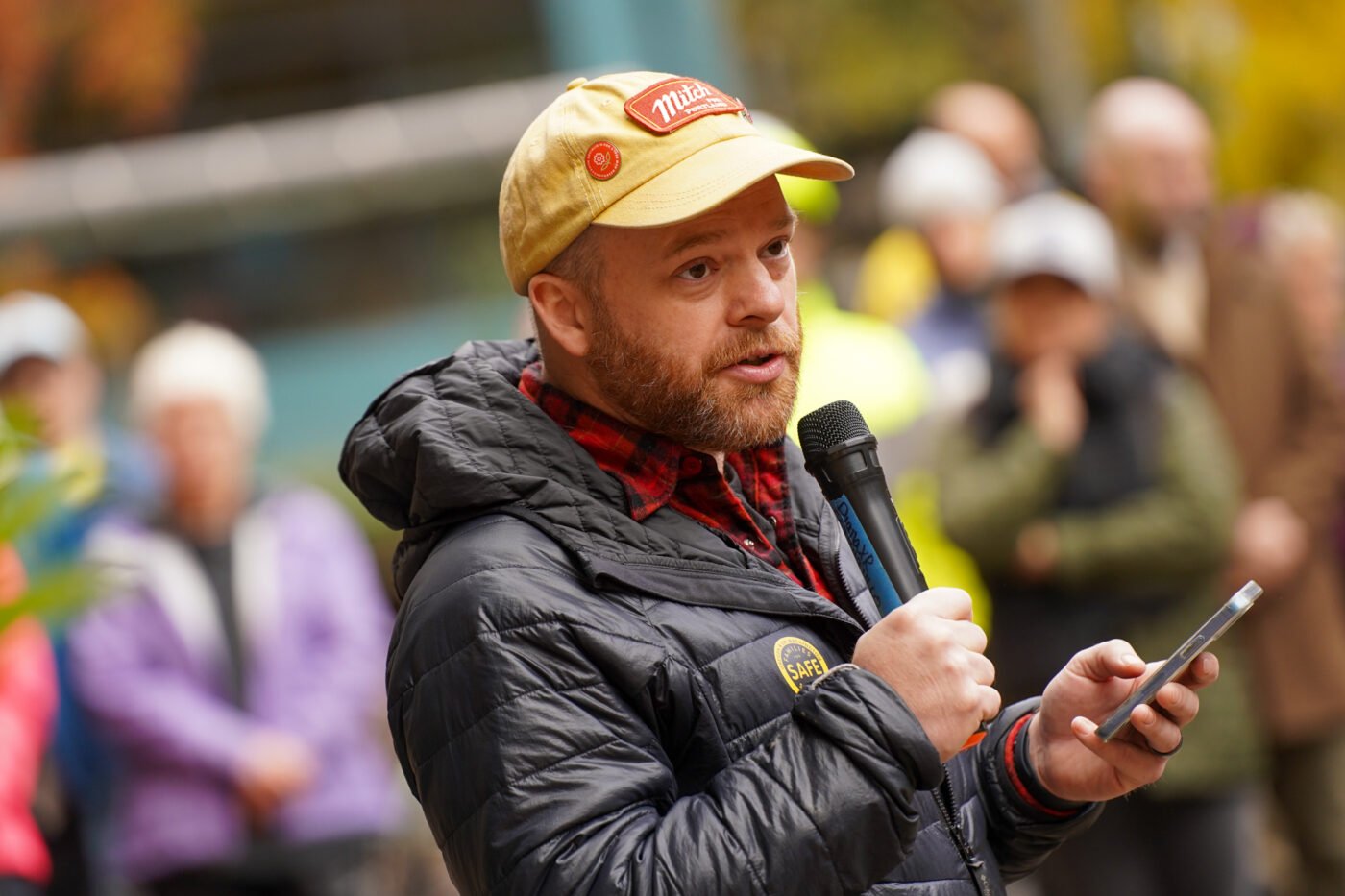
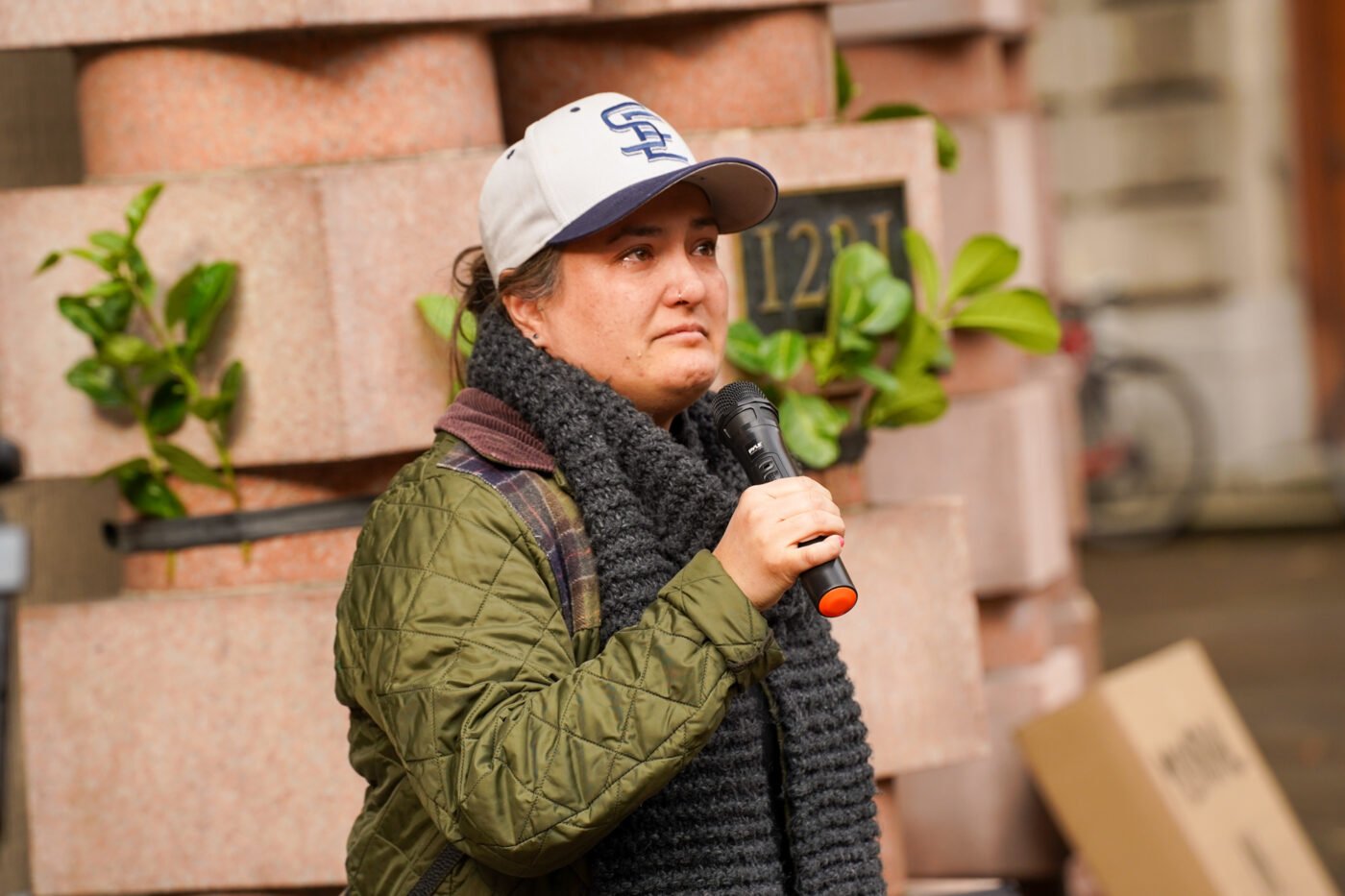
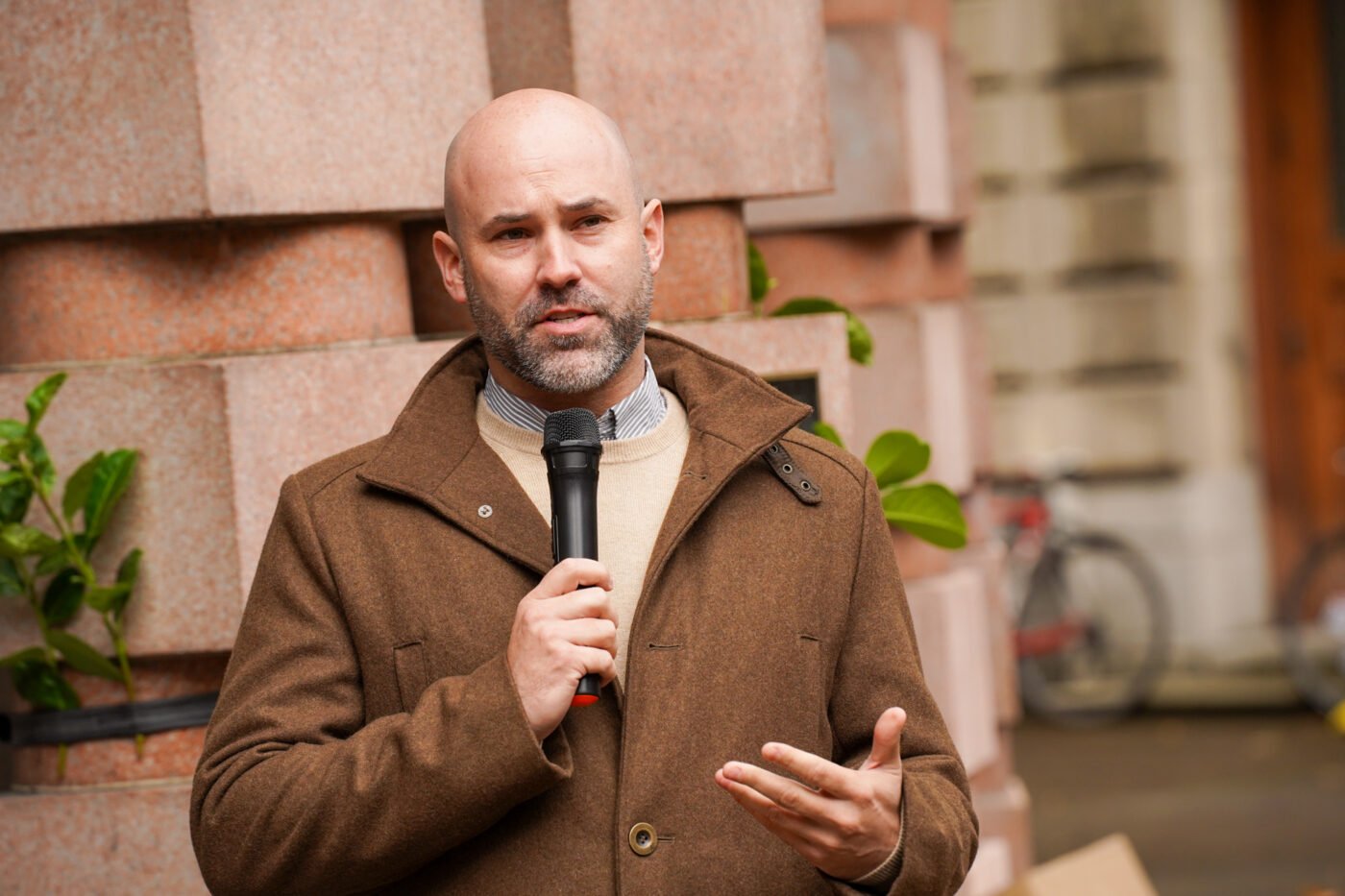
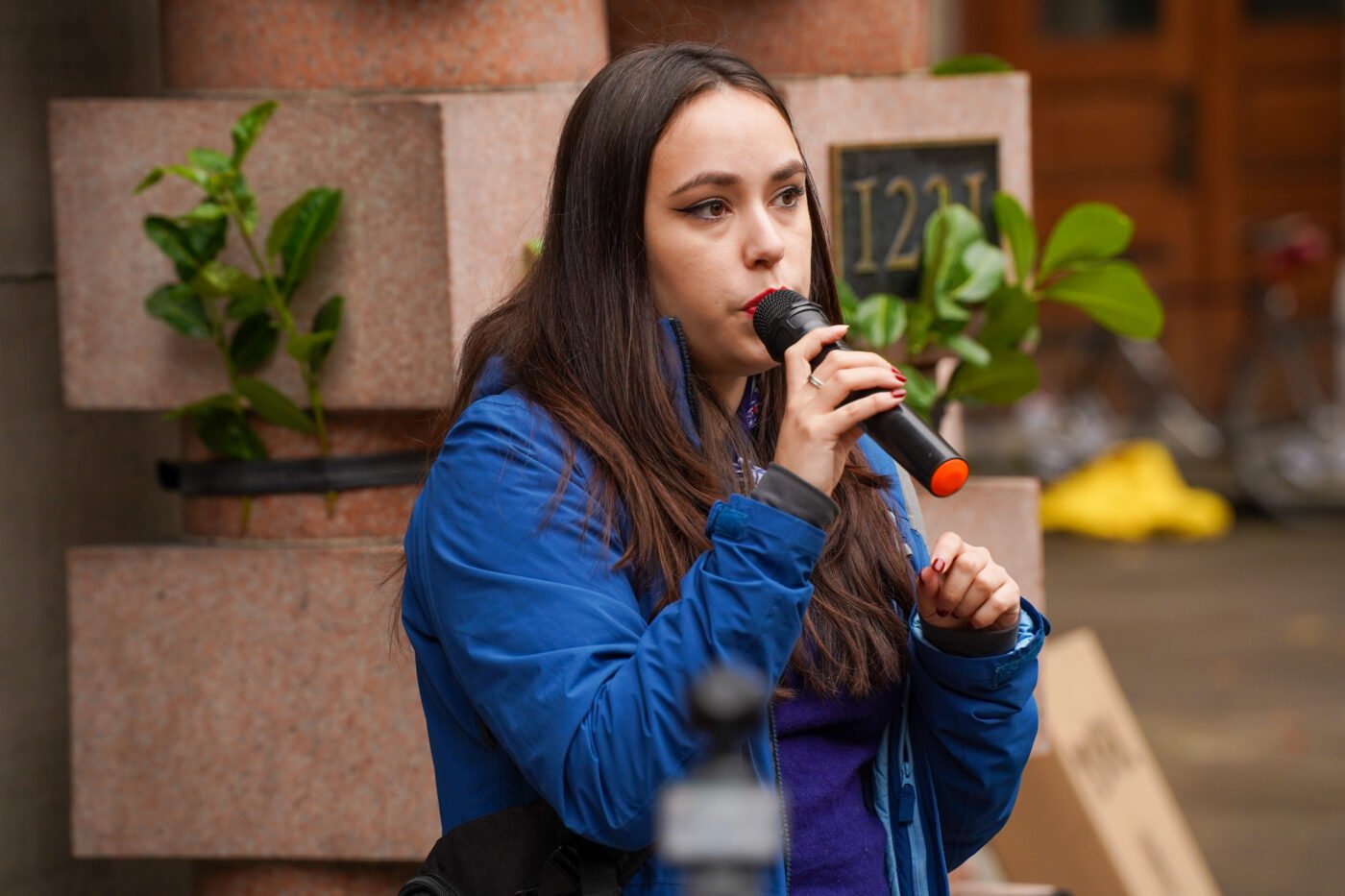
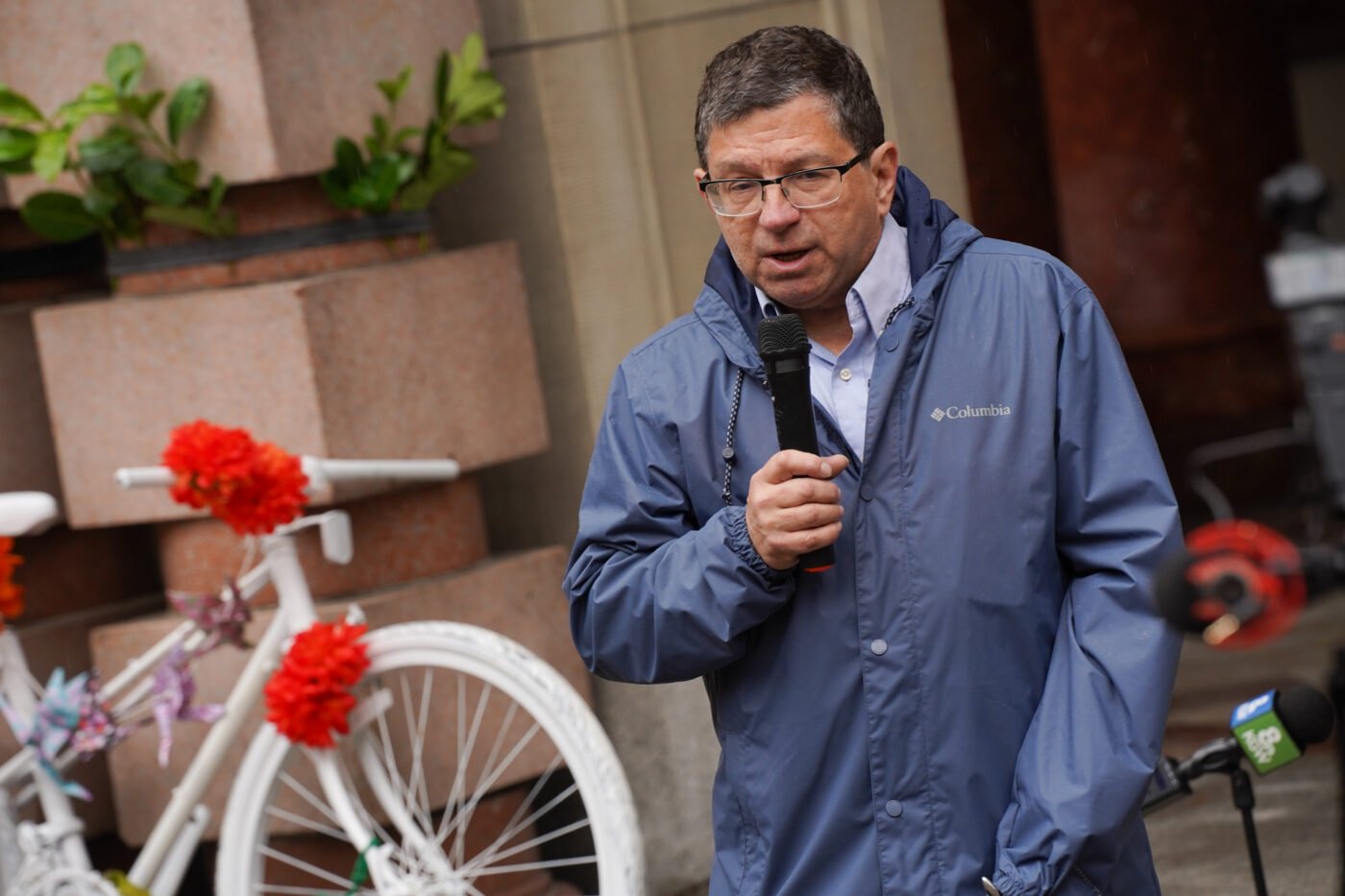
Green said he was almost hit by a car driver while biking to the event on SW Barbur Blvd. He used his speech to talk about the need to take a systems-level approach to road safety. “Because we lack infrastructure for safe, active transportation, many people will default to wearing a car as armor. And as one person does, so does another and another, so we engage in an arms race of driving larger cars to keep our loved ones safe — meanwhile those who do not drive are increasingly exposed to the collateral damage of this arms race,” Green said. If the city built more sidewalks, installed more modal filters (aka diverters) and did more road diets, “It’d be much easier for people to make the choice to leave the car at home.”
And then Green, speaking like as if he wants the title of council’s cycling and road safety champion, said he sees it as his job to make streets safety, that he’ll lead the “fight” for more funding and better policies, and that Portland City Council should have a permanent Safe Streets Committee. Then he looked over at fellow District 4 candidate Chad Lykins and said, “You can be sure if I don’t make progress on this, Chad will take my seat.”
“I’ve wanted to make that turn. I’ve wanted to drive faster. But what I’ll take from today is that none of that annoyance can outweigh the impact when tragedy strikes.”
– Eric Zimmerman, D4 councilor-elect
Koyama Lane, who will represent southeast Portland on City Council, fought back tears as she recalled walking and riding her scooter by roadside memorials in her neighborhood. “This shouldn’t be normalized,” she said. She talked about fighting for more safe streets funding and added that she wants the community to hold her accountable once she takes a seat on the dais: “This isn’t a topic that we’re just supposed to talk about when we’re running for office and it’s cool to go to Bike Happy Hour… we will keep fighting.”
Zimmerman, the District 4 councilor-elect, admitted that he’s been annoyed as a driver by some of the changes the Portland Bureau of Transportation has made to our streets. “I’ve wanted to make that turn. I’ve wanted to drive faster,” he shared. “But what I’ll take from today is that none of that annoyance can outweigh the impact when tragedy strikes.”
Former city commissioner and new District 3 rep-elect Steve Novick has a special place in this conversation. During his last stint at City Hall he was in charge of PBOT and knows how the transportation policy sausage is made (or at least was made before the charter changes). Novick also spoke impromptu after being moved by what he heard from survivors. He was at times defiant during his speech, saying, “Drivers have become crazier since the pandemic, and cars have become bigger, and that’s a problem.” Because of that, he said, “Frankly, I am not worried about the Big Brother aspect of putting speed cameras at every goddamn intersection in the city.” Novick also vowed support for higher registration fees for larger SUVs and trucks.
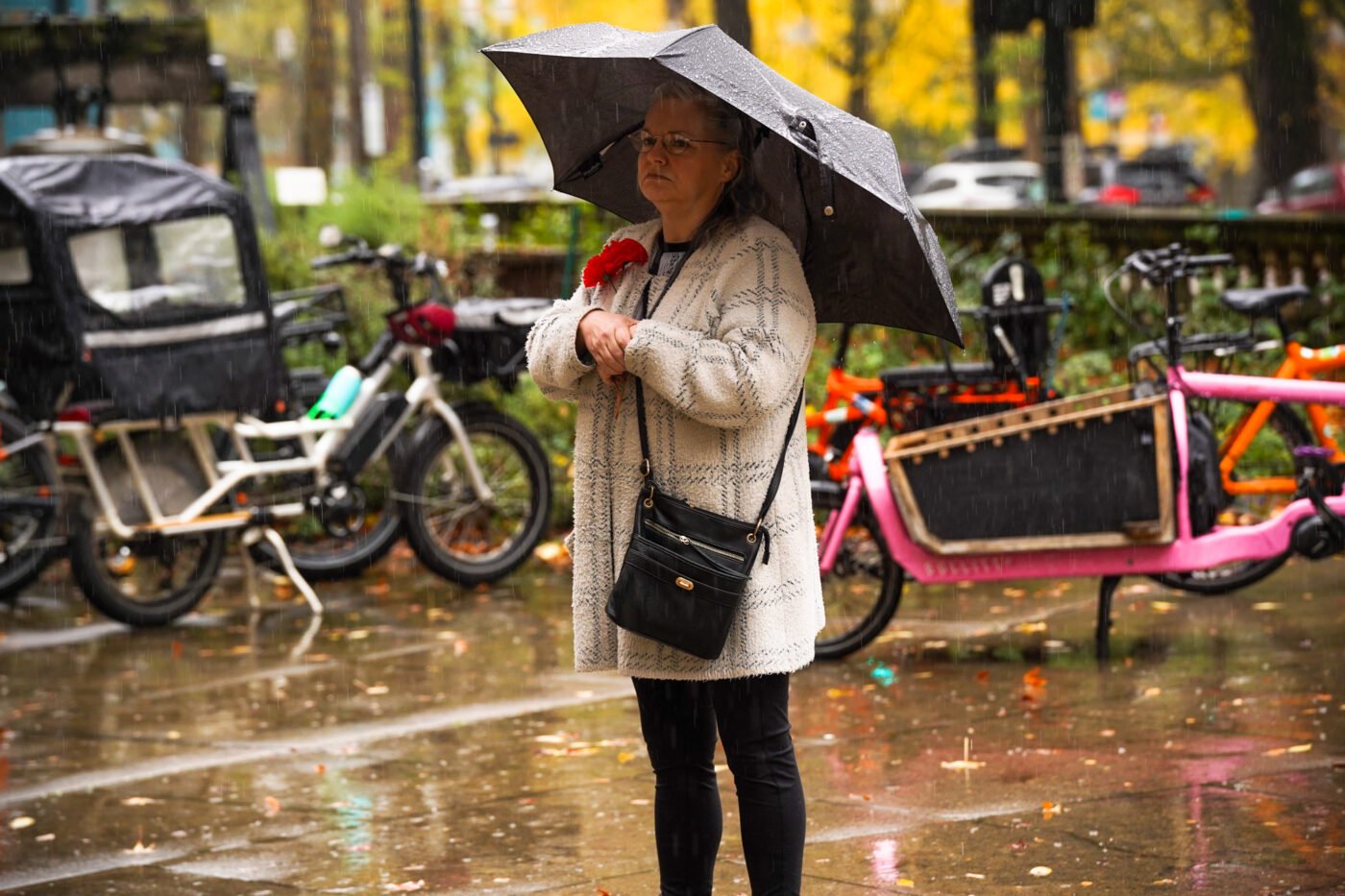
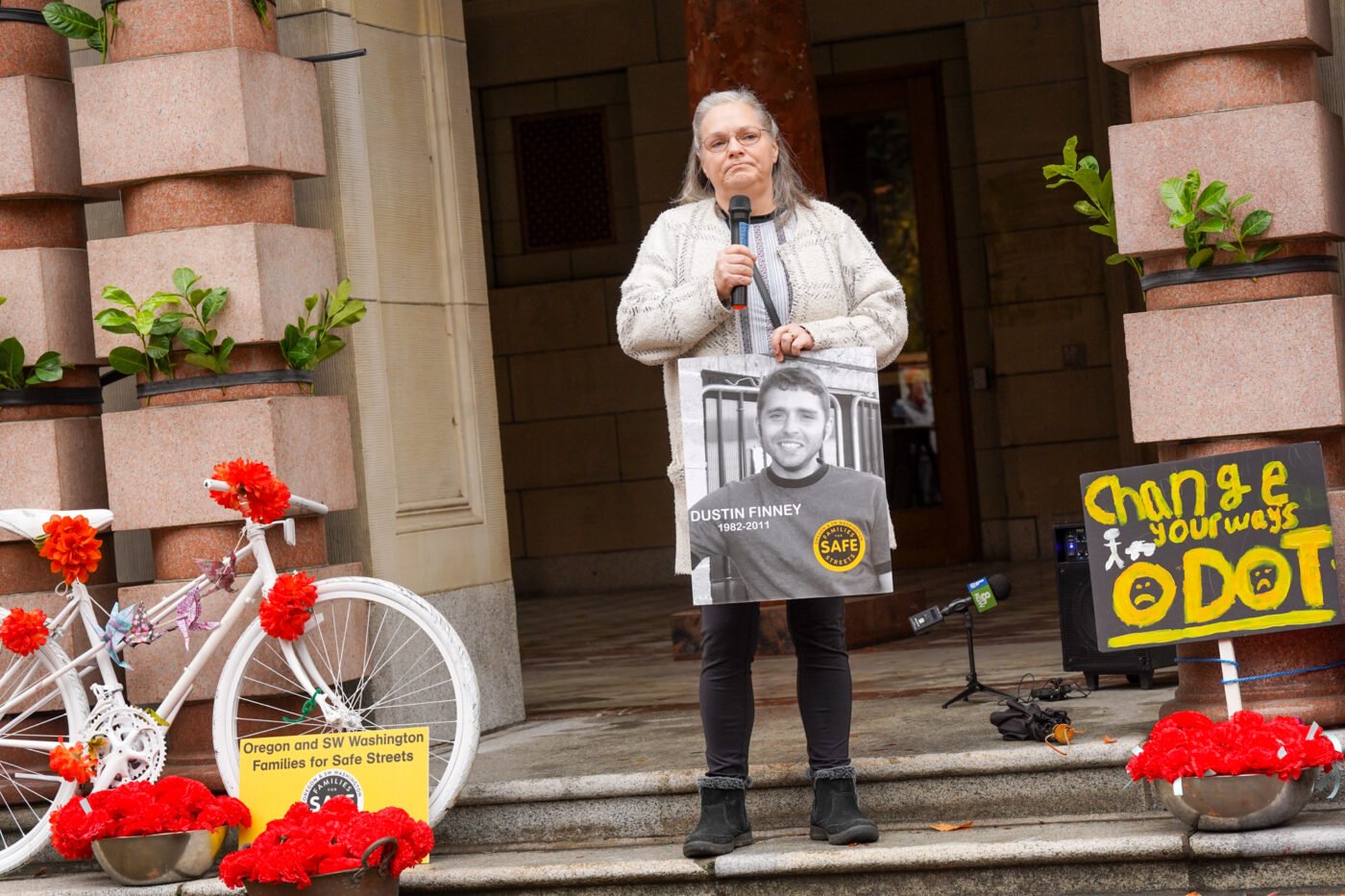
When emcee and co-organizer of the event Michelle DuBarry introduced Kristi Finney-Dunn, I was surprised and heartened. Finney-Dunn’s son Dustin Finney was killed in August 2011 while riding his bike on Southeast Division near 84th. It was a hit-and-run that resulted in the driver serving a five-year prison sentence and I’ll never forget being in the courtroom that day while Finney-Dunn stared across the room at the man who killed her son and stood to address the court holding her sons ashes in her arms.
Finney-Dunn was a fixture in local safe streets activism for five years or so, but had fallen completely off my radar since about 2016. She was reluctant to even show up Sunday. “Part of the reason I didn’t want to come today was that I feel so pessimistic,” she said, as her hand on the mic shook with a mix of rage and sadness. “Why are there not thousands of people here today?! Why?!” she asked a rapt crowd. “This is a small crowd compared to the numbers of people we know are impacted every single day by these traffic crashes.”
Finny Dunn’s anger was palpable and warranted.
PBOT Vision Zero Coordinator Clay Veka was not only present to hear the speakers, she was also invited to speak. “We have a vision for streets that is different than today’s reality,” Veka said. Then she admitted she and her colleagues can do more. “PBOT has not moved fast enough or invested sufficiently to fundamentally transform our streets to advance our Vision Zero goal.” Veka said PBOT can’t reach Vision Zero on their own and it will take partnerships on housing, land use, addiction services, and transit to make it a reality.
The final person to speak was event co-organizer Sarah Risser from Bike Loud PDX. Risser was in the car as a passenger with her teenage son Henry at the wheel when they were hit by a semi-truck on a rural road. Henry died next to her while they waiting for first responders to arrive. Risser has dedicated herself to helping survivors — and the community-at-large — remember crash victims. A few weeks ago she stood on the corner of NE 105th and Marx with the mother of Damon Cousins, who was killed by a driver while bicycling to work October 21st.
When Cousins’ mom shared a photo of him with Risser, she thought it conveyed strength and beauty. “Another young adult with so much to offer the world, lost to a crash. I thought, ‘Why do we tolerate this?'” Risser said to the crowd that had assembled under the City Hall portico to escape heavy rainfall.
Risser recounted how moved his grieving mom was when a long line of cyclists showed up to remember her son. “The community showed up. The community cared,” Risser said. “We stood together around a memorial mostly in silence with the victim’s family. I’m not sure there is more important work than this.”
The event ended with the Threshold Choir singing into the space where advocates and survivors huddled together in relative darkness as rain fell all around.
“They are sending you light.
To heal you.
To hold you.
They are sending you light.
To hold you in love.”
